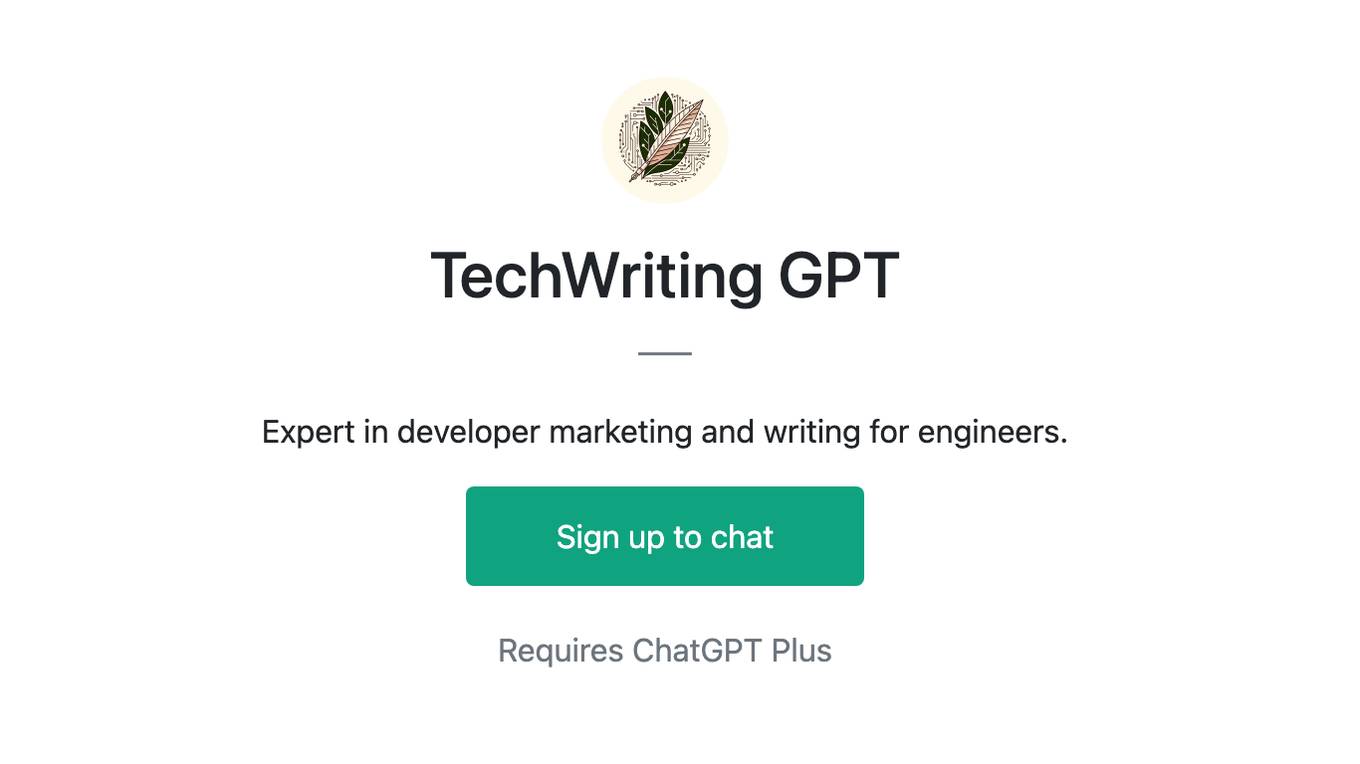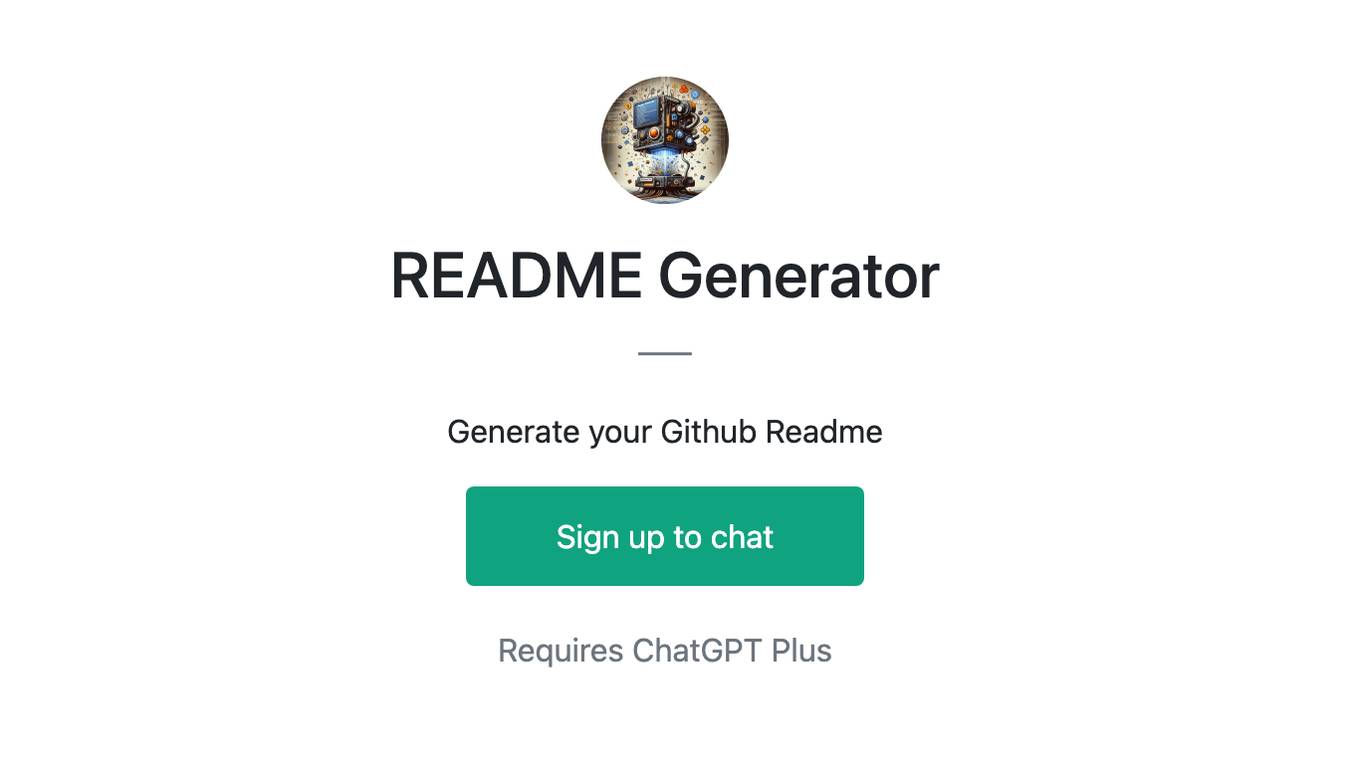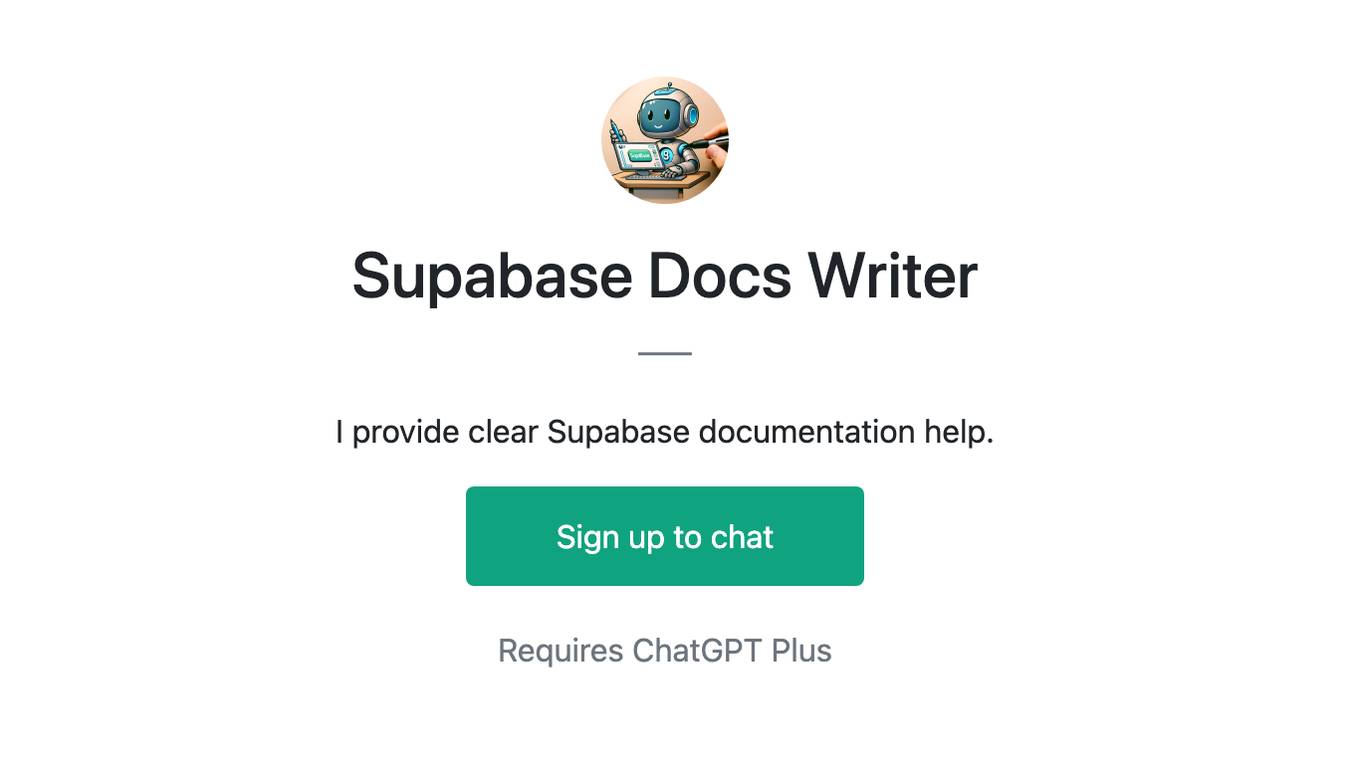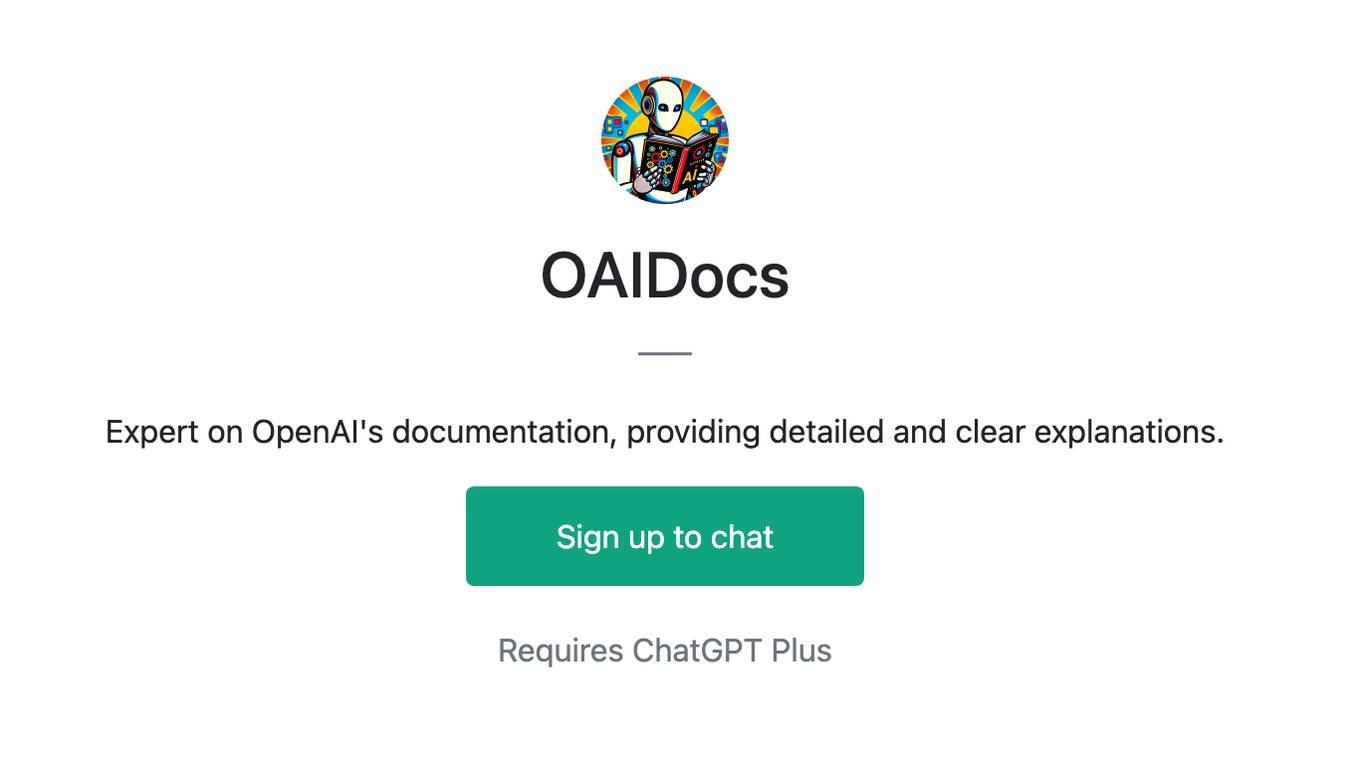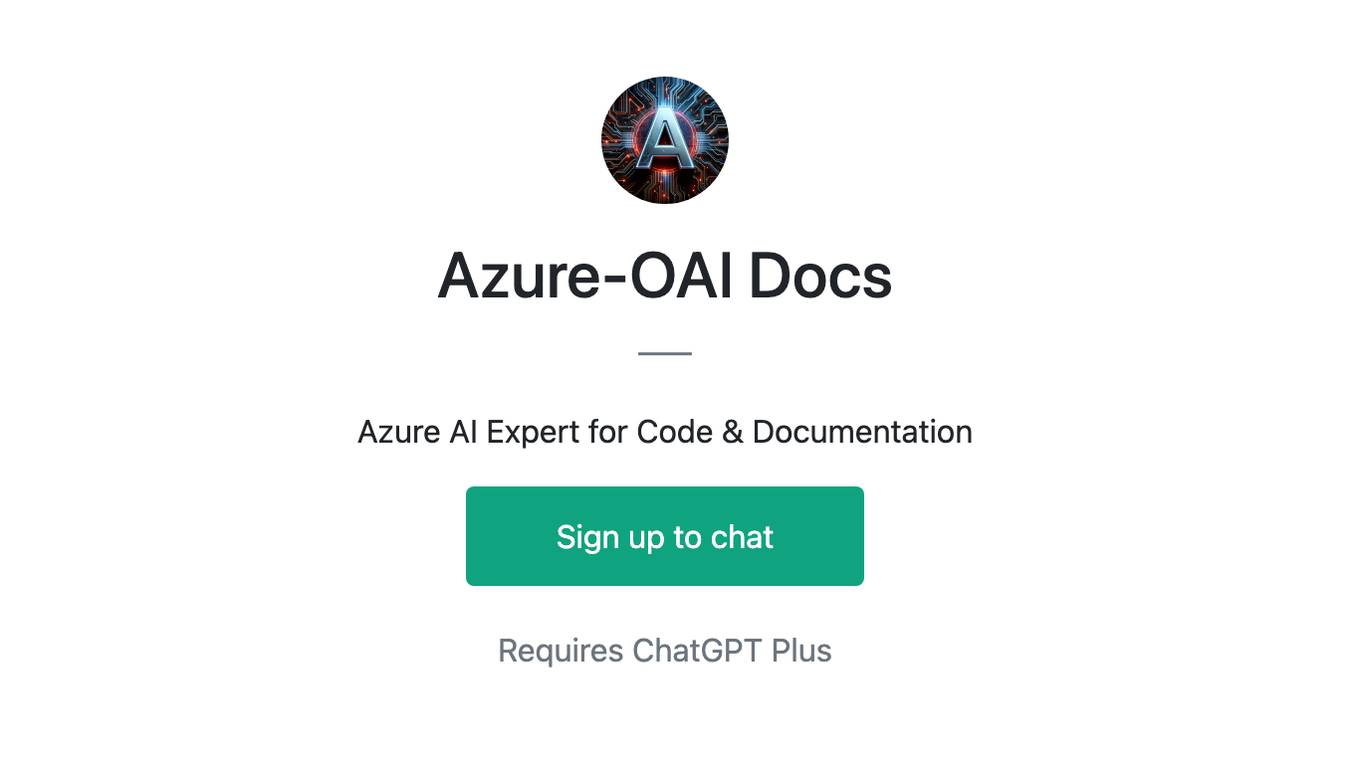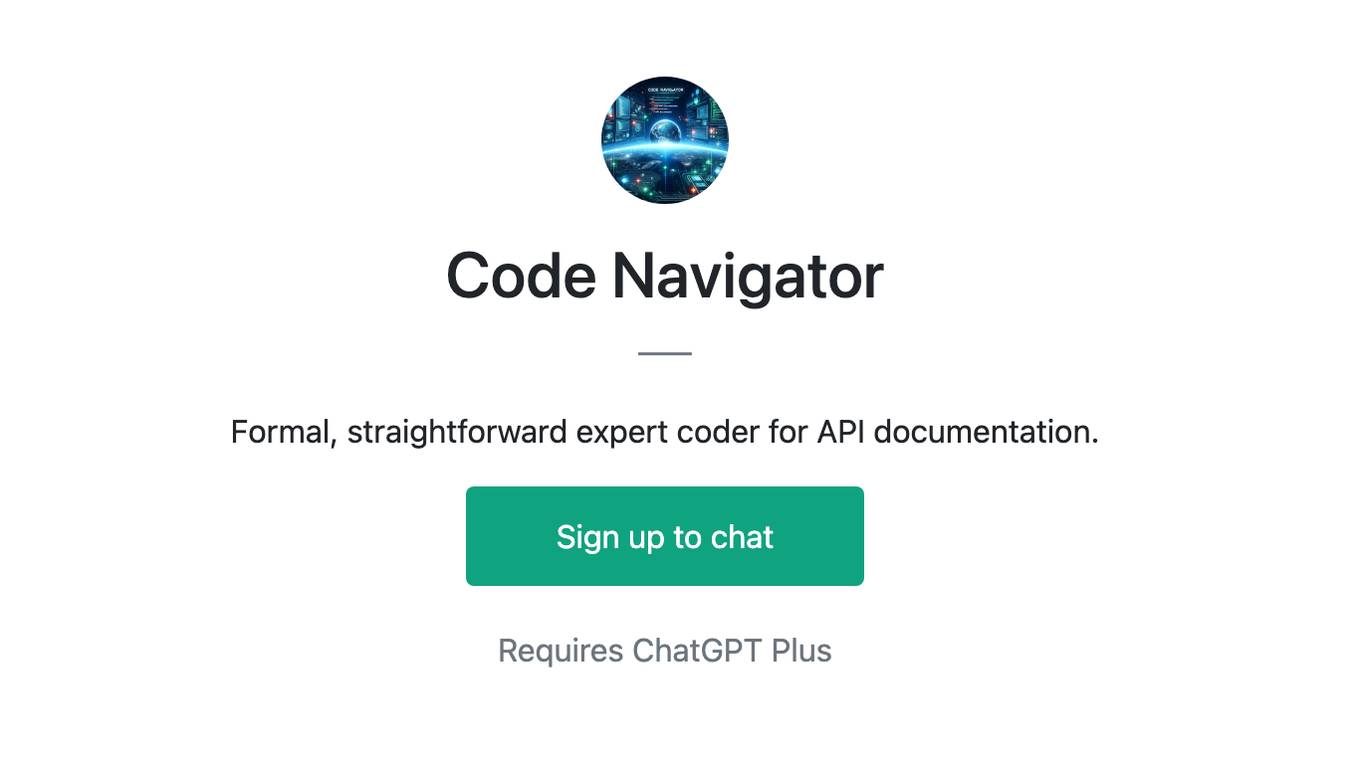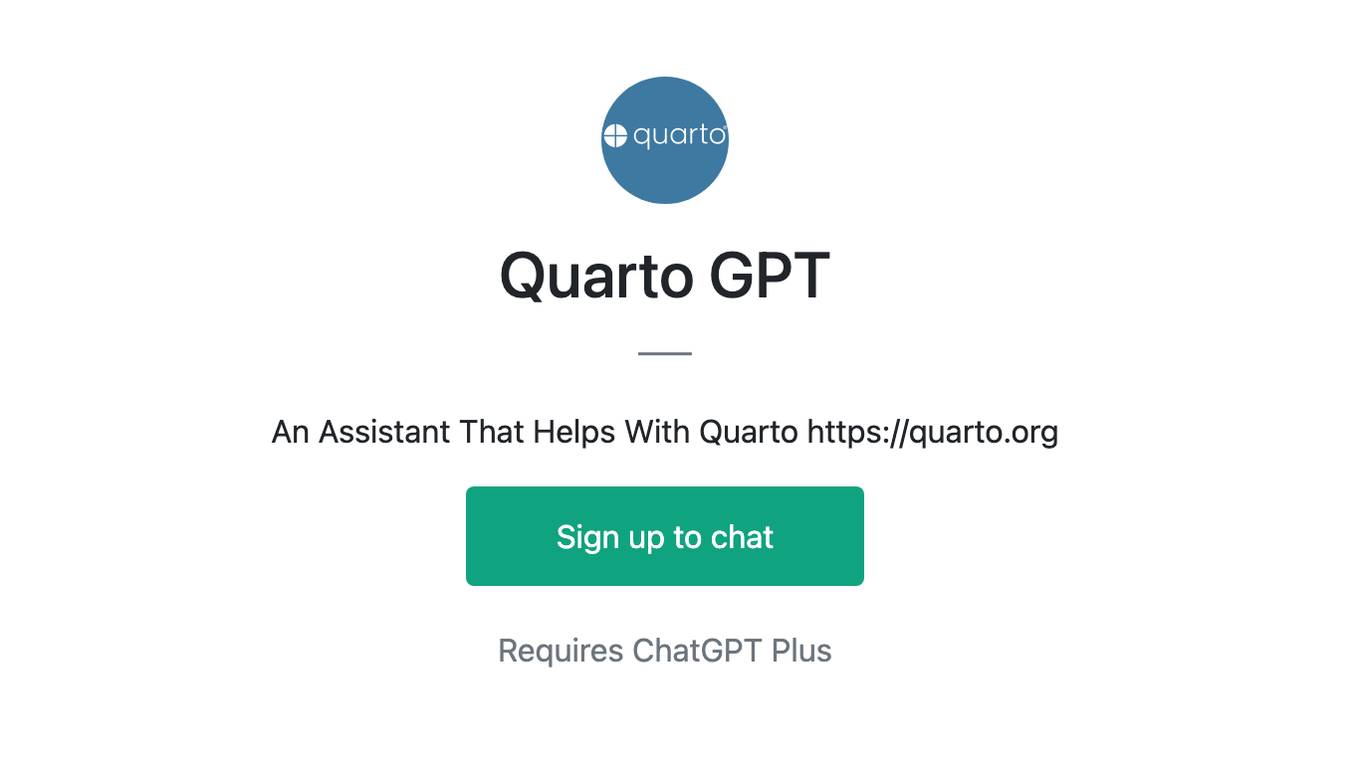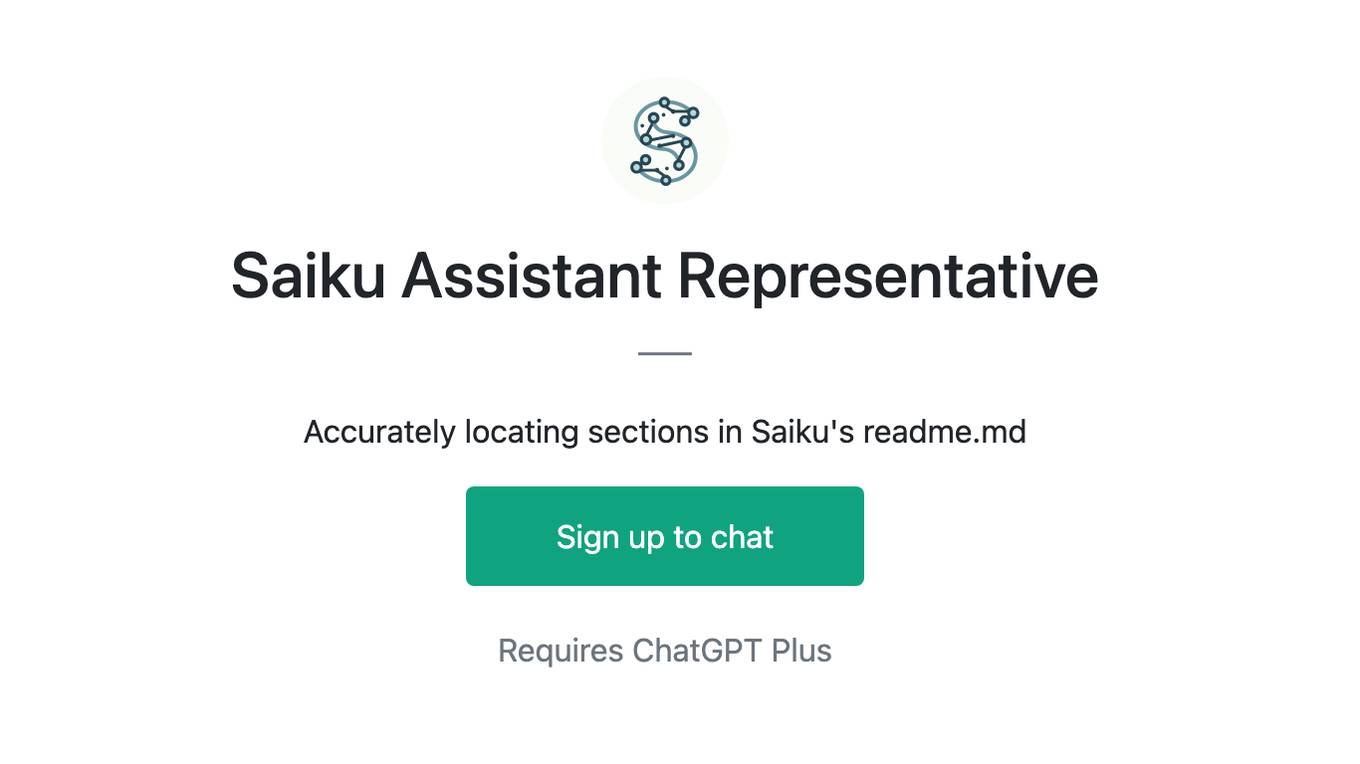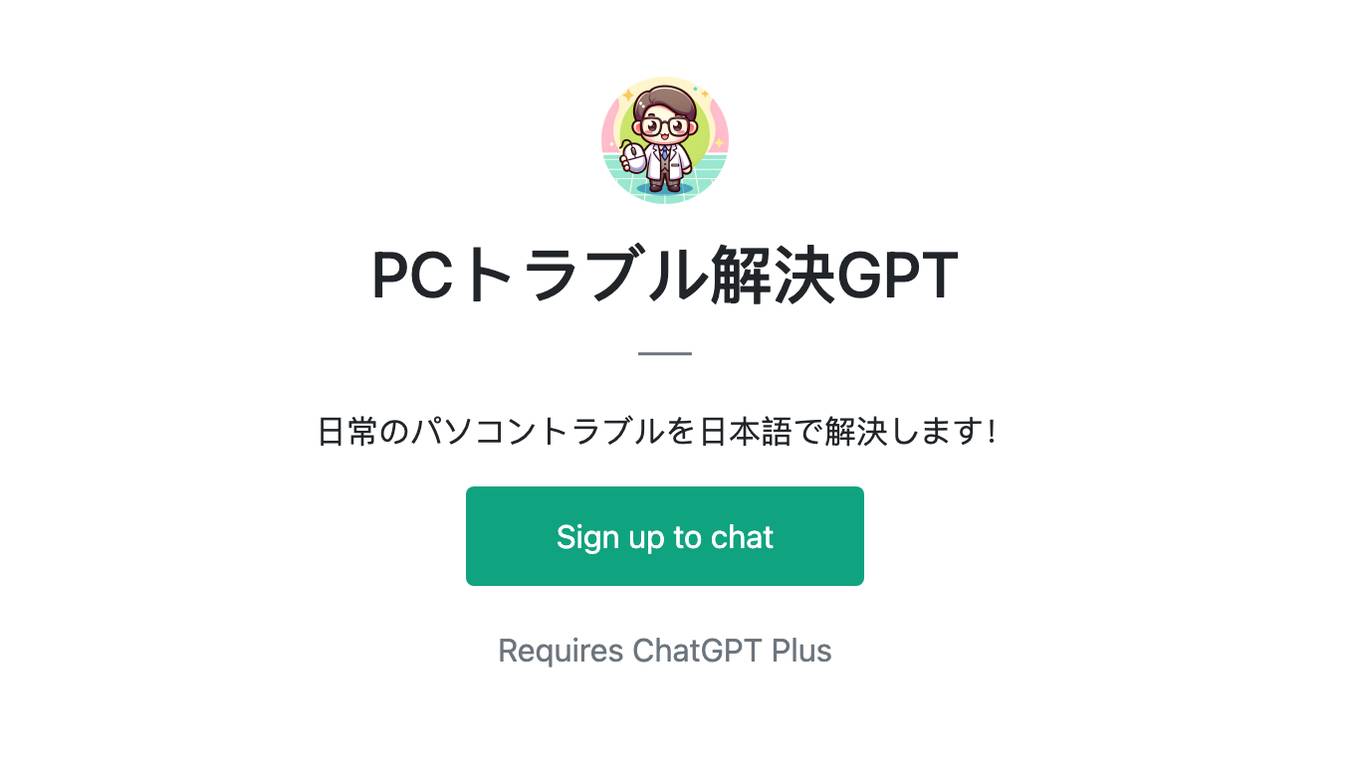Best AI tools for< Generate Technical Documentation >
20 - AI tool Sites

Write once. Tailor for every role.
This application allows you to write once and tailor your writing for every role. It is a powerful tool that can help you save time and improve the quality of your writing.
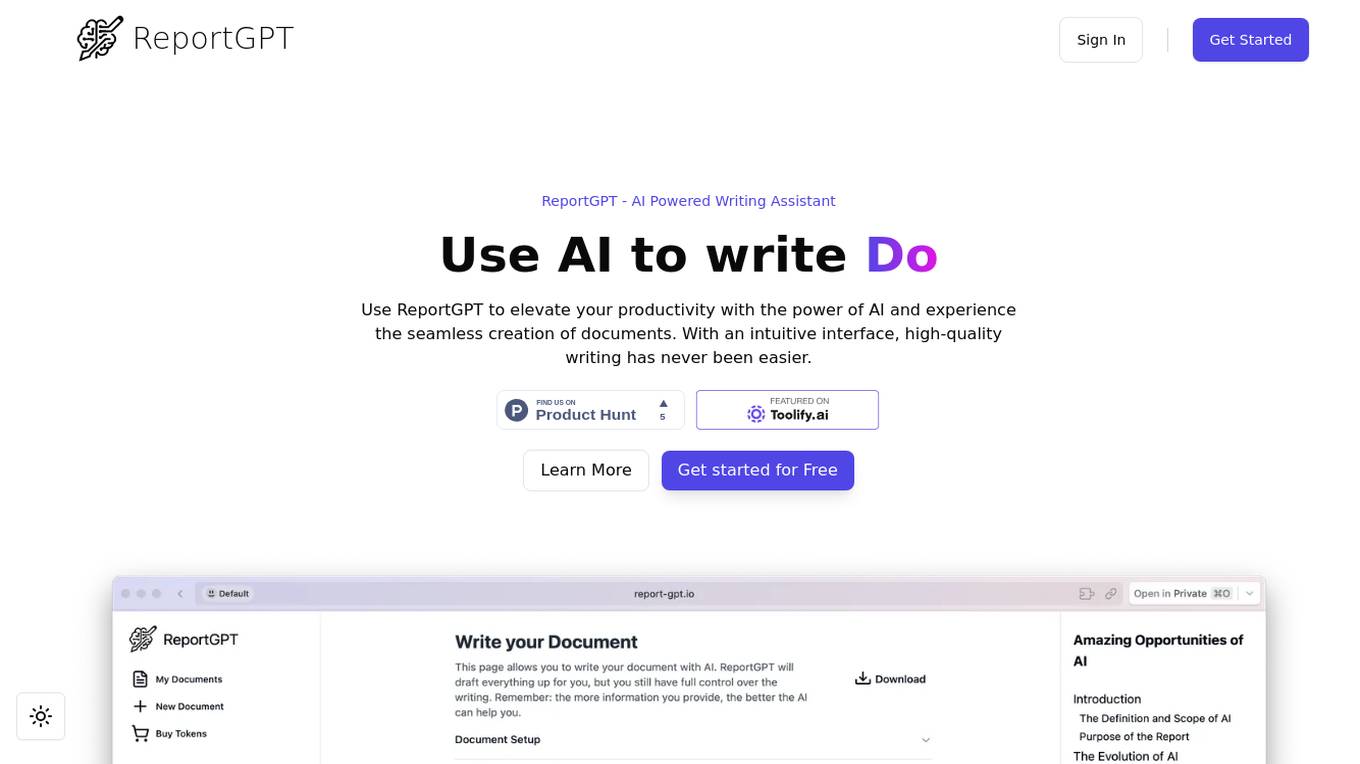
ReportGPT
ReportGPT is an AI-powered writing assistant that helps users generate, review, and refine content. It offers a range of features designed to streamline the writing process, including AI-powered writing assistance, an intuitive user interface, customizable document structures, a versatile writing interface, and diverse export options. ReportGPT is suitable for a variety of writing tasks, including research papers, business plans, product reviews and comparisons, technical documentation, grant and proposal writing, and essays.
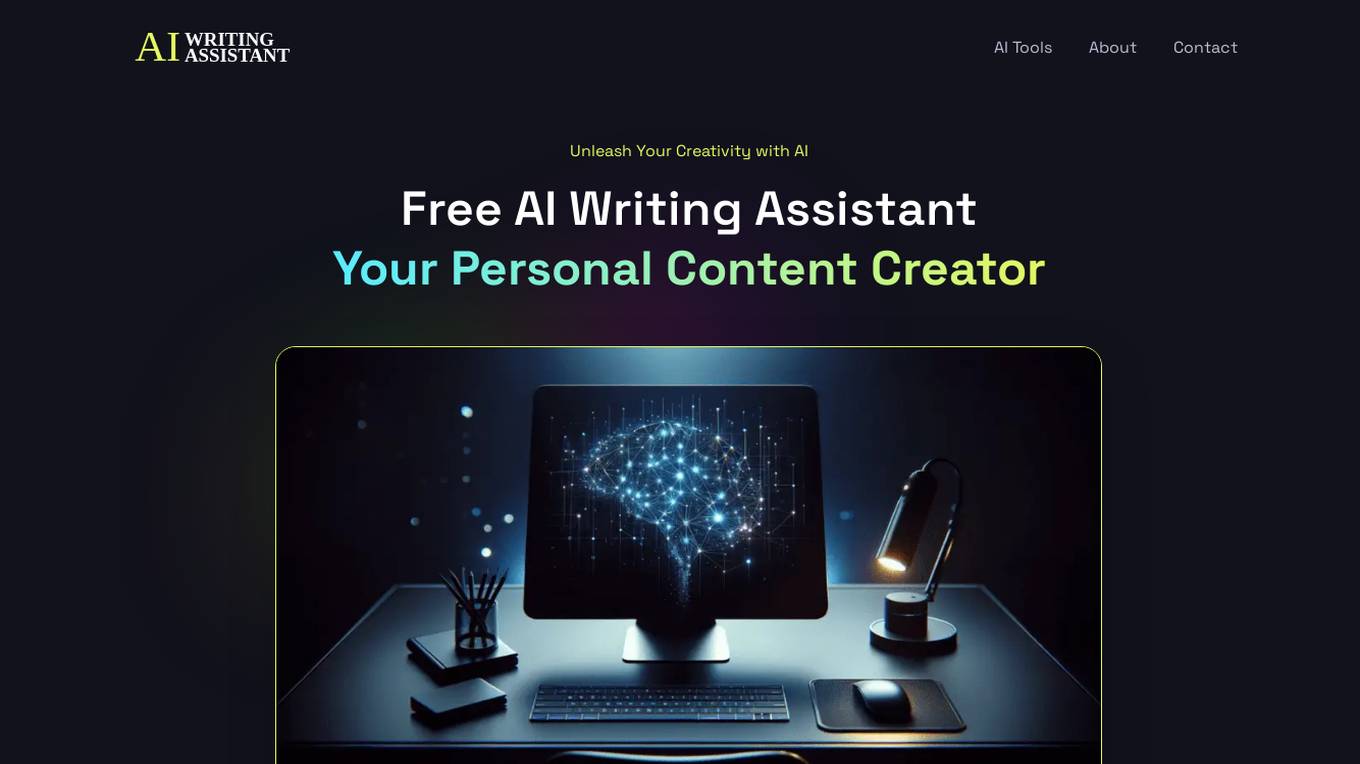
AI Writing Assistant
This AI writing assistant is a free online tool that helps users generate unique, high-quality content quickly and easily. With its advanced features and capabilities, this tool is perfect for anyone who wants to improve their writing skills, save time, and boost their productivity. The tool offers a variety of features, including limitless content creation, intuitive text generation, advanced grammar and style correction, content personalization and tone adjustment, and multilingual content creation support. It can be used for a variety of writing tasks, including blog posts and articles, technical documentation, social media posts, product descriptions, academic essays, research papers, SEO content, and technical writing.
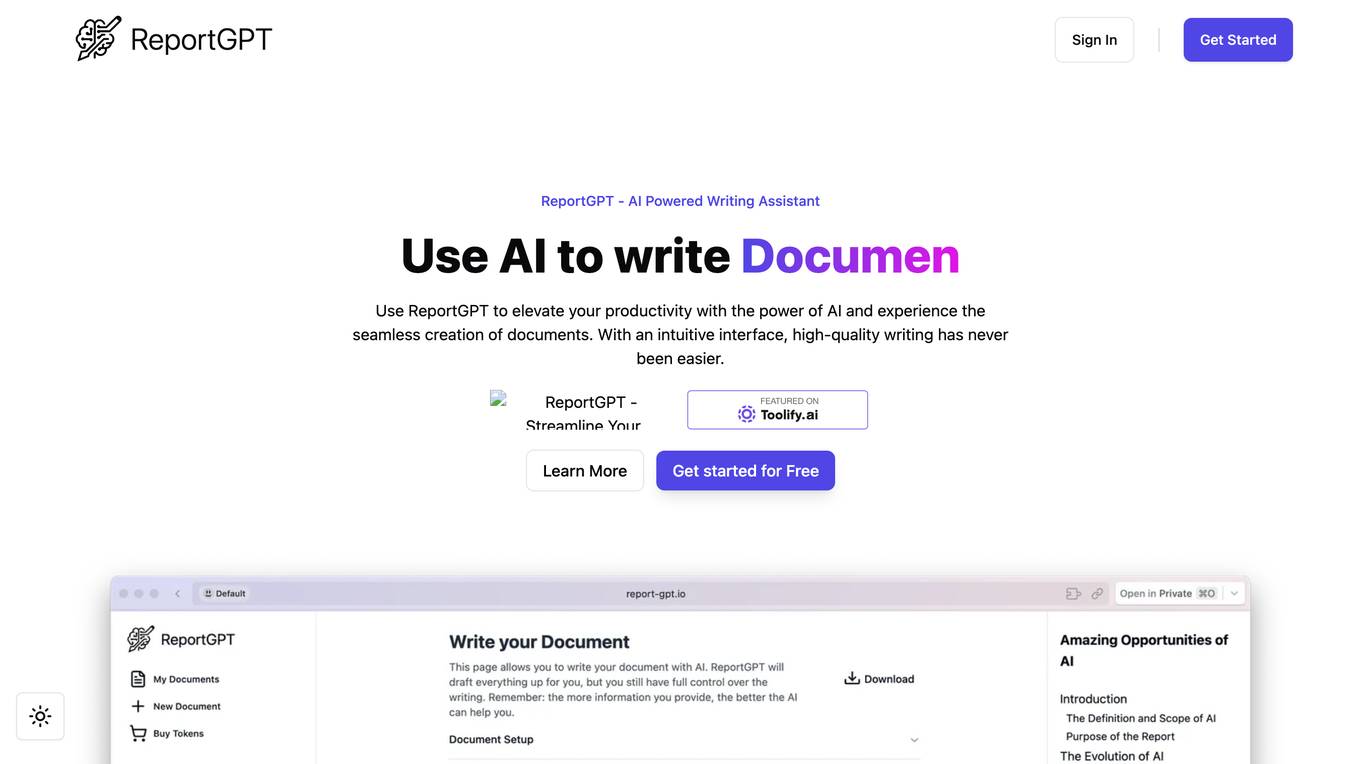
ReportGPT
ReportGPT is an AI-powered writing assistant that helps users create high-quality documents efficiently. It offers a range of features, including AI-powered writing assistance, an intuitive user interface, customizable document structures, a versatile writing interface, and diverse export options. ReportGPT is suitable for a variety of writing tasks, including research papers, business plans, product reviews and comparisons, technical documentation, grant and proposal writing, and essays.
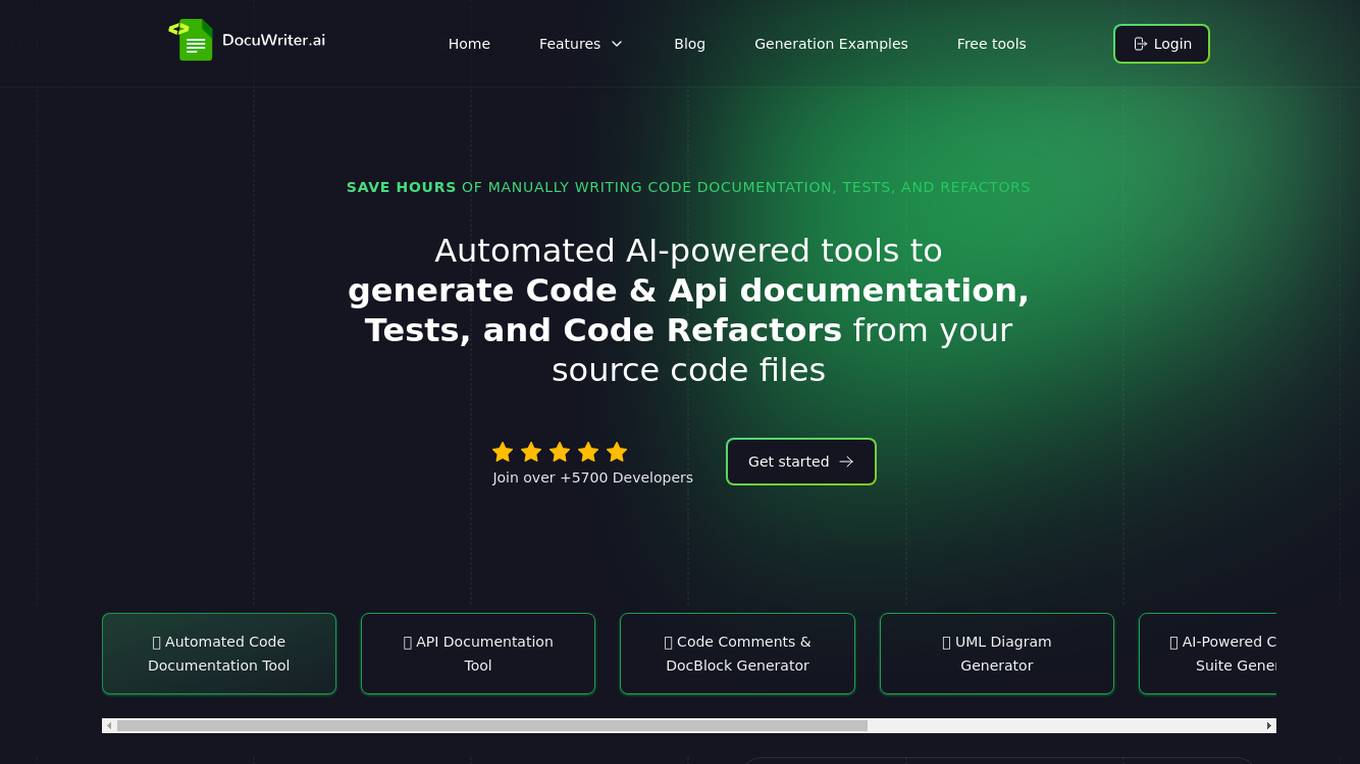
DocuWriter.ai
DocuWriter.ai is an AI-powered tool that helps developers automate code documentation, testing, and refactoring. It uses natural language processing and machine learning algorithms to generate accurate and consistent documentation, test suites, and optimized code. DocuWriter.ai integrates with popular programming languages and development environments, making it easy for developers to improve the quality and efficiency of their code.
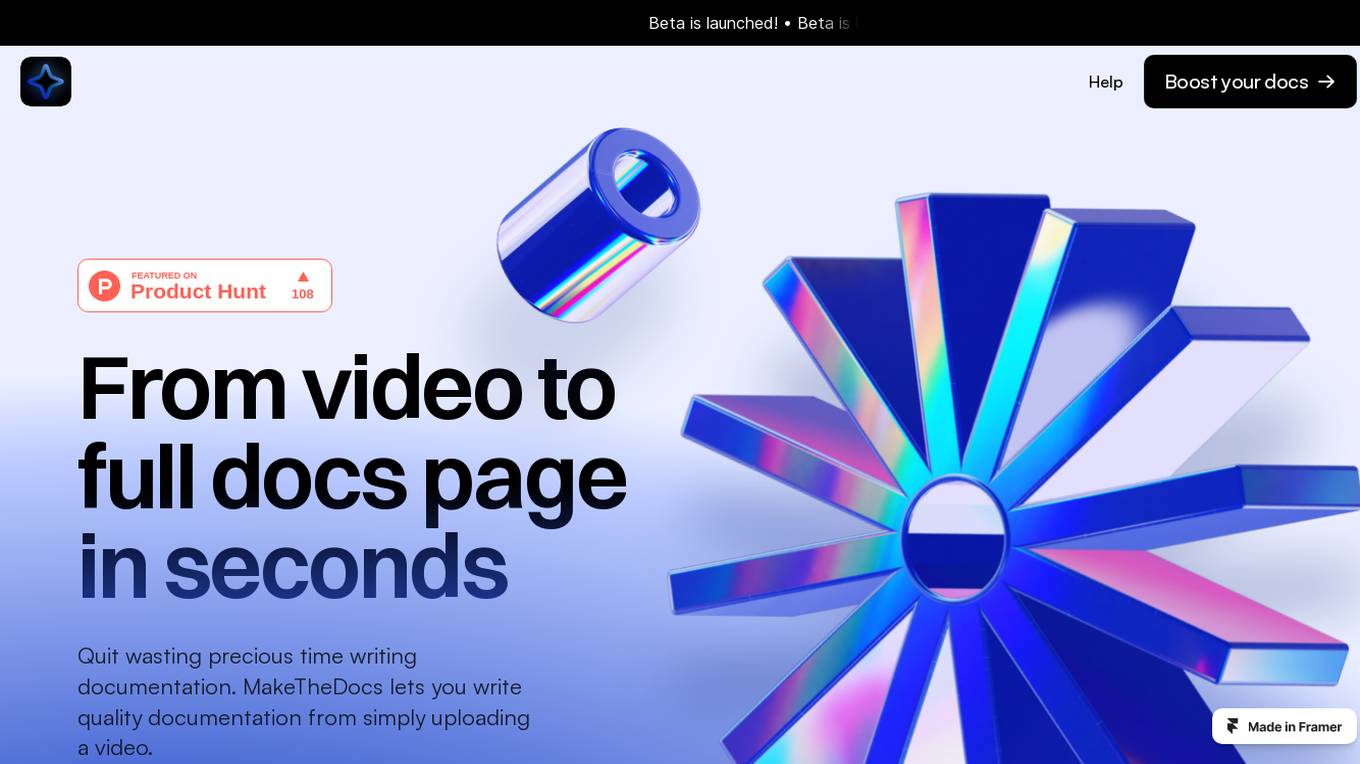
MakeTheDocs
MakeTheDocs is an AI-powered documentation tool that allows users to create quality documentation quickly by simply uploading a video. The tool leverages AI technology to analyze and generate documentation in less than a minute, saving users time and effort. MakeTheDocs offers various pricing plans with different features such as token usage, video length, export options, and support levels. Users can customize their documentation pages by adding branding and setting goals. The tool ensures data privacy by not collecting user data without consent.
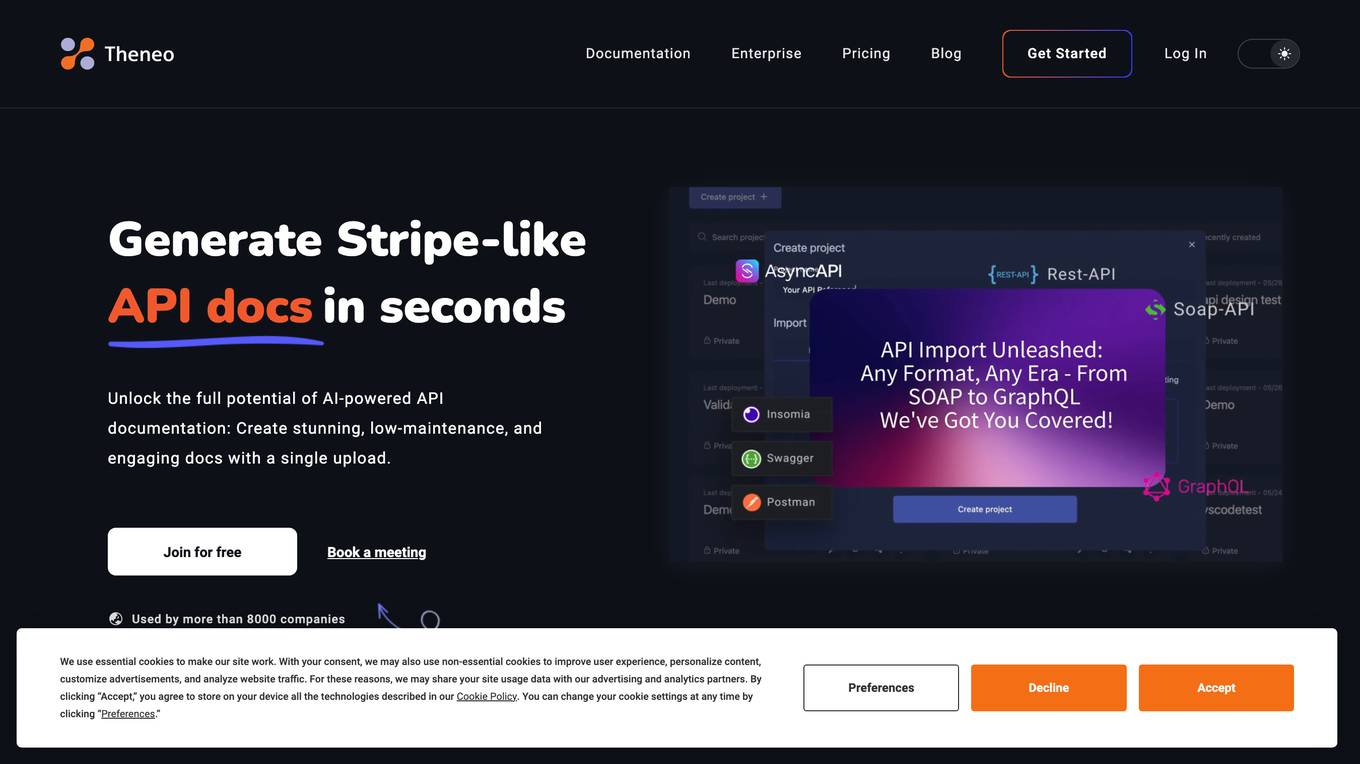
Theneo
Theneo is an AI-powered API documentation tool that helps developers create, maintain, and publish beautiful, interactive API documentation. With Theneo, you can automatically generate API descriptions and summaries, collaborate with your team in real-time, and customize your documentation to match your brand. Theneo also integrates with your favorite development tools and source code editors, so you can create and maintain your documentation right from your workflow.
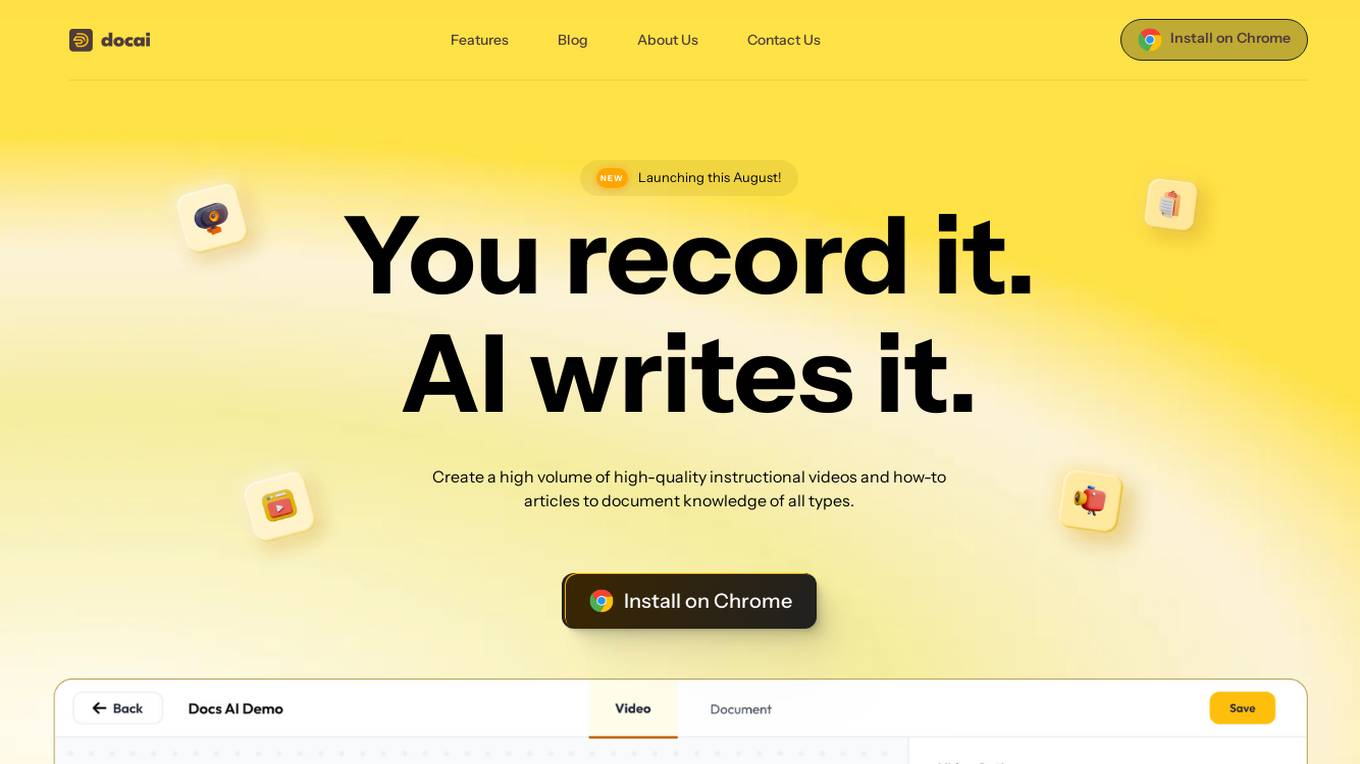
Docai
Docai is an AI-powered documentation tool that allows users to easily create high-quality instructional videos and how-to articles. By recording your screen and camera with the help of the Docai Chrome Extension, you can quickly generate comprehensive documentation using AI technology. Docai offers features such as studio-quality video production, auto-transcription, video editing capabilities, AI voice narrator, document templates, and collaborative editing. With key integrations, browser extensions, and a robust API, Docai can be seamlessly integrated into various workflows to streamline the documentation process.
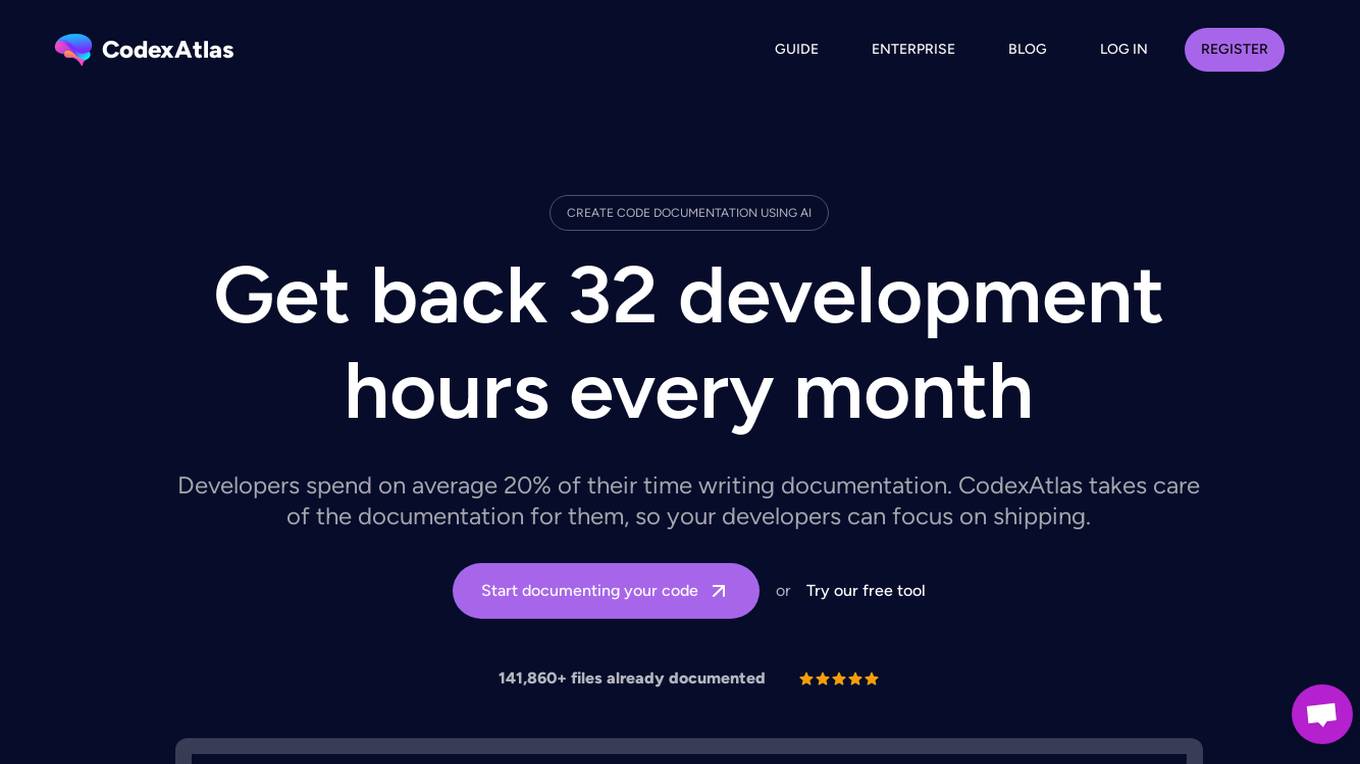
CodexAtlas
CodexAtlas is an AI-powered tool designed to automate code documentation processes. It leverages the latest advancements in Artificial Intelligence to generate and maintain documentation for software projects, freeing developers from the time-consuming task of writing documentation. With features like real-time updates, onboarding time reduction, and use-case detection, CodexAtlas aims to streamline the documentation process and enhance developer productivity. The tool also offers code conversion capabilities, business domain knowledge integration, and the option for on-premise deployment to cater to diverse organizational needs.
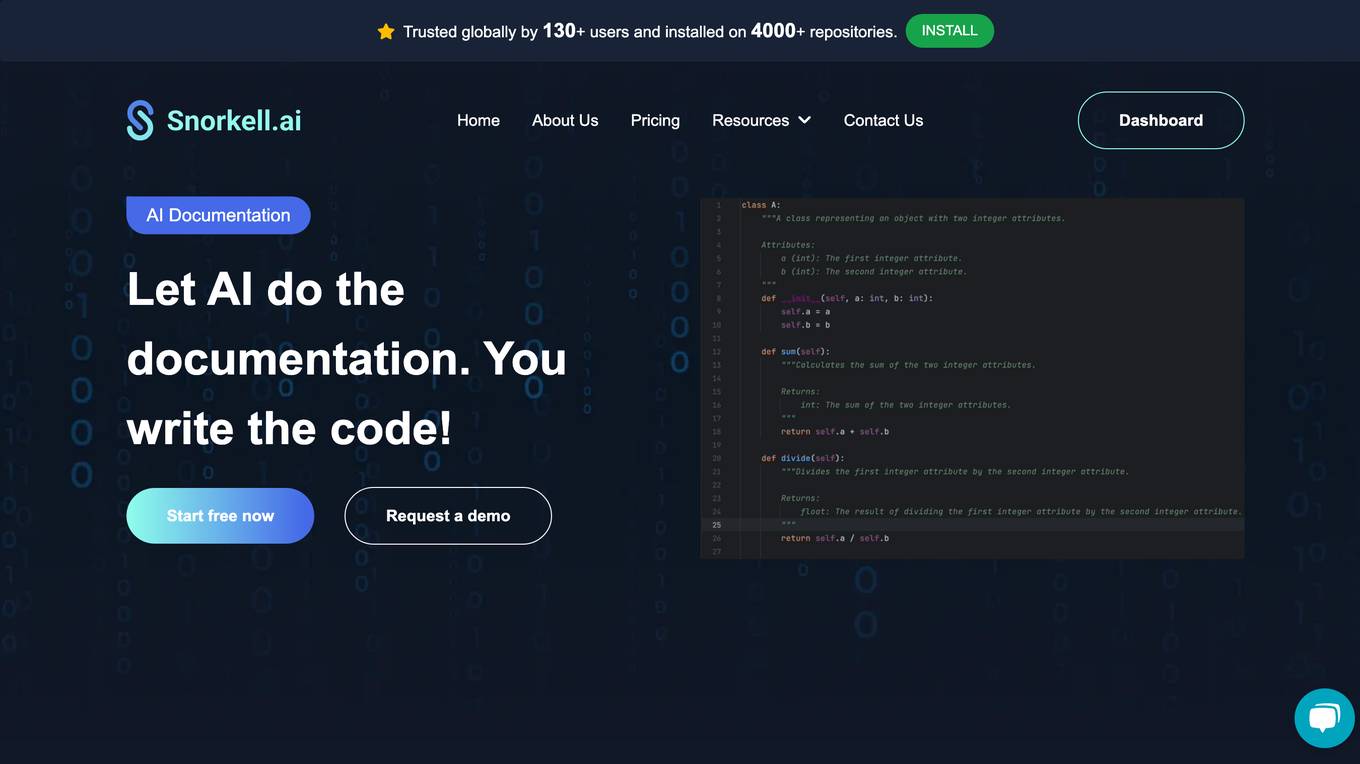
Snorkell.ai
Snorkell.ai is an automated documentation generation tool that uses AI to create and update docstrings for GitHub projects. It supports multiple programming languages, including Python, JavaScript, TypeScript, Java, and Kotlin. Snorkell.ai integrates with GitHub and automatically generates docstrings whenever a pull request is merged, ensuring that documentation is always up-to-date with the codebase. It helps developers save time and effort by automating the documentation process, leading to improved code quality and reduced onboarding time.
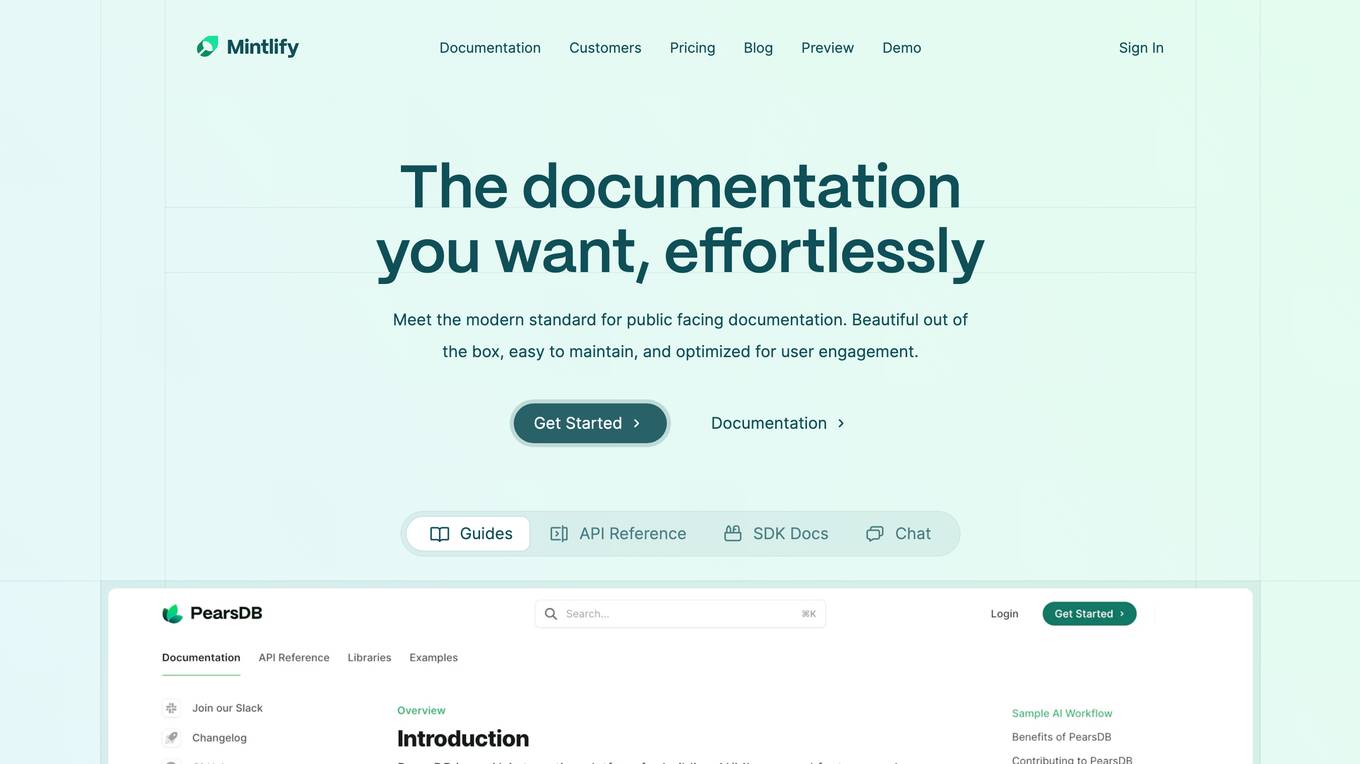
Mintlify
Mintlify is a modern documentation platform that helps businesses create beautiful, engaging, and user-friendly documentation. It is designed to be easy to use and maintain, and it offers a variety of features to help businesses improve their user engagement and conversions. Mintlify is used by a variety of companies, from fast-growing startups to large enterprises.
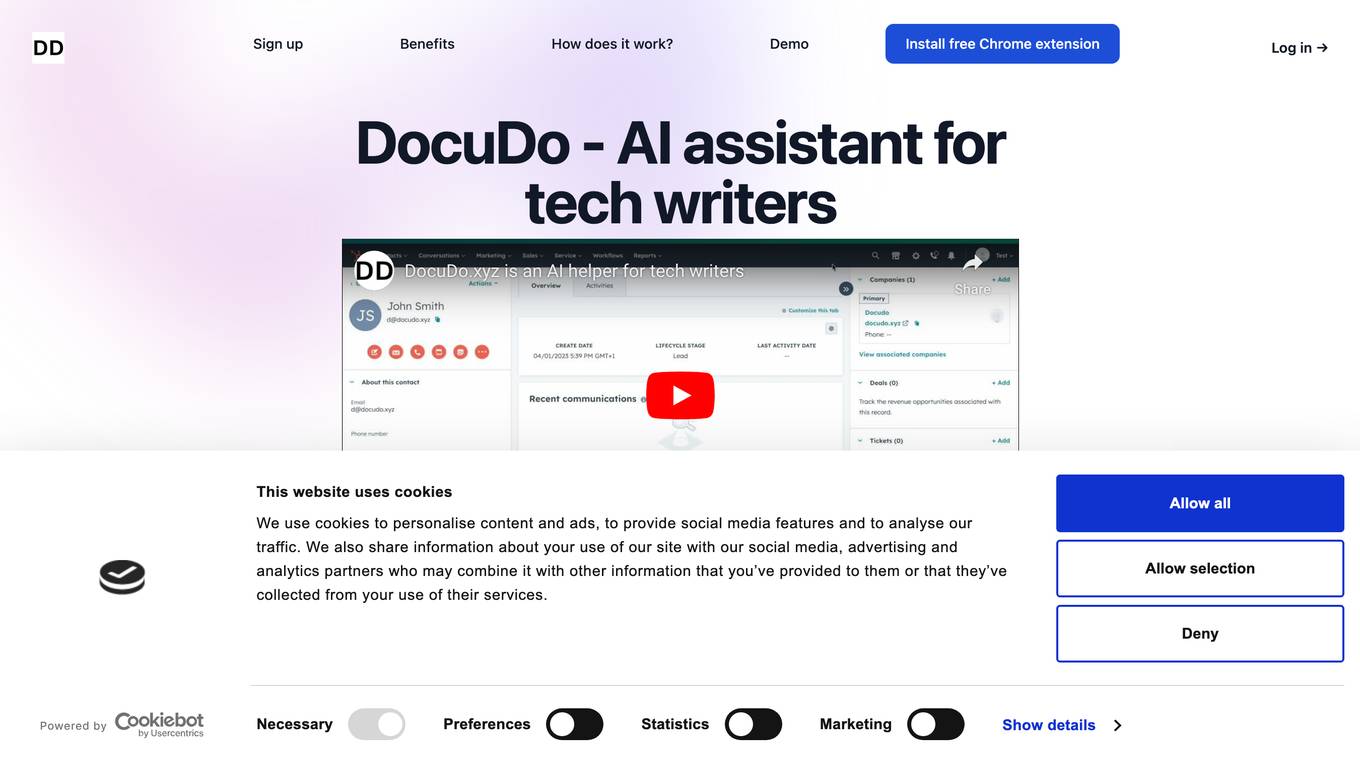
DocuDo
DocuDo is an AI assistant for tech writers that helps you write support documentation 10x faster. With DocuDo, you can record a screencast of your product, and DocuDo will automatically generate the corresponding support article. DocuDo uses LLM, such as ChatGPT, to prepare content and screenshots, so you can be sure that your documentation is accurate and up-to-date.
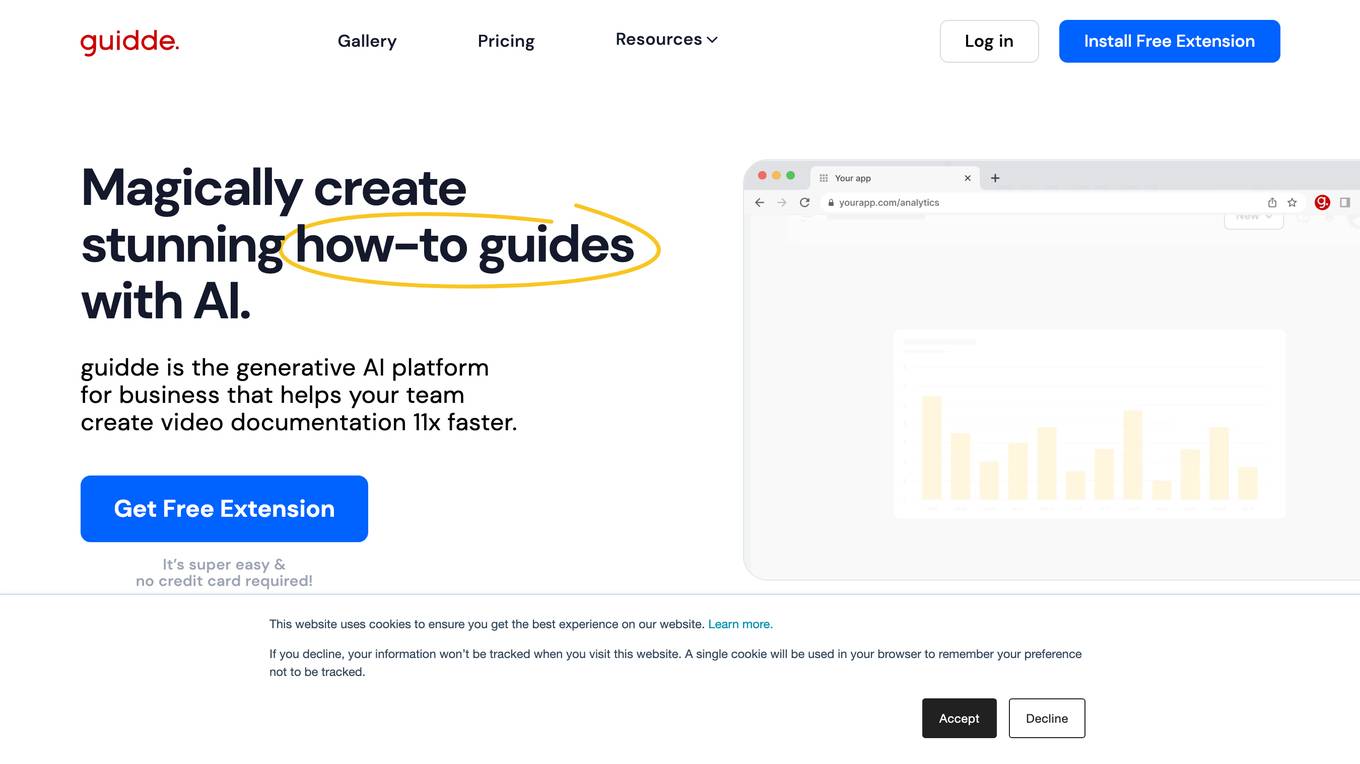
Guidde
Guidde is a generative AI platform that enables businesses to create video documentation 11 times faster. It offers a seamless workflow for capturing and creating polished narrations and effortless guides. With Guidde, users can transform workflow captures into professional tutorials in minutes, deliver personalized content to employees and customers, and centralize processes for improved collaboration and consistency across the organization. The platform helps drive everyday AI use, personalize learning by role, build customer confidence, unlock employee growth, simplify organizational change, and accelerate digital adoption. Guidde allows users to create stunning how-to guides, SOPs, training materials, onboarding docs, FAQs, and feature notes with AI, making documentation creation faster and more efficient.
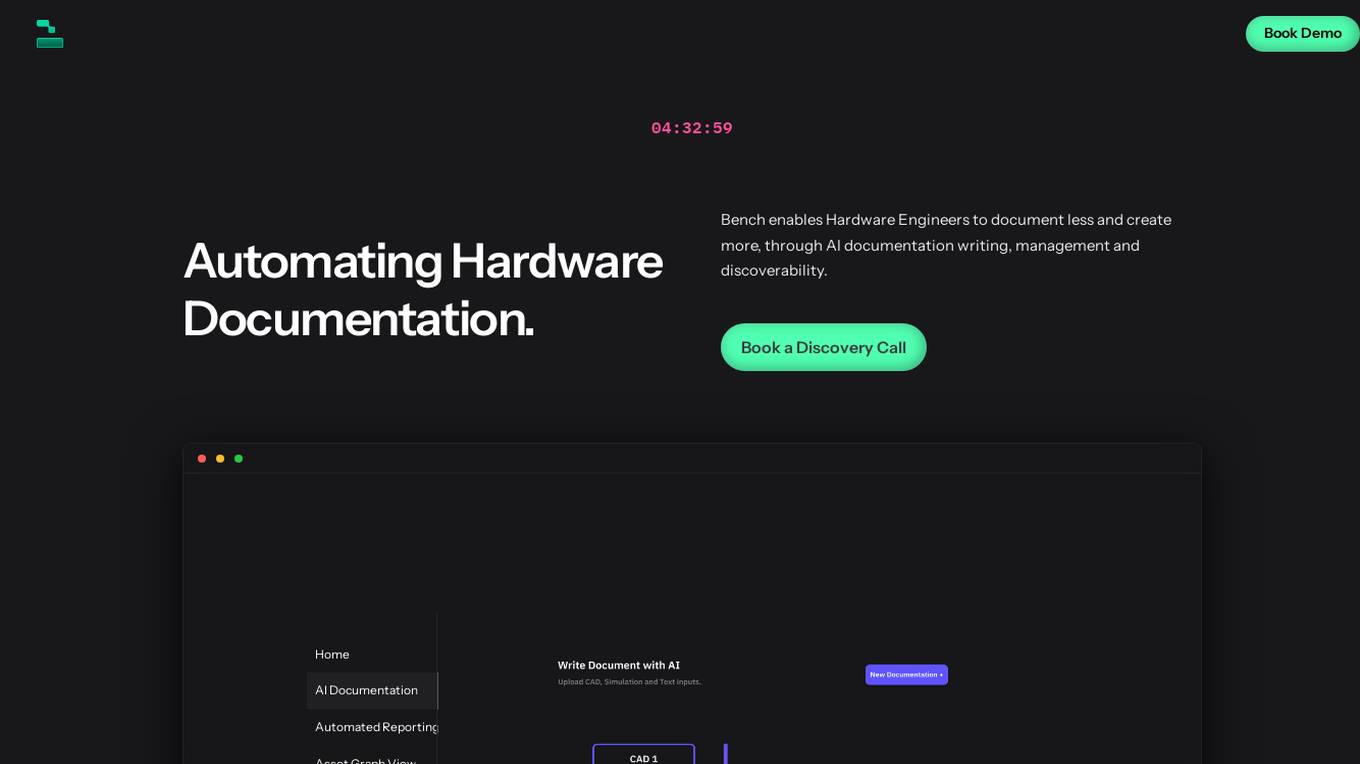
Bench
Bench is an AI tool designed to automate hardware documentation for Hardware Engineers. It helps users document less and create more by utilizing AI for documentation writing, management, and discoverability. The tool offers features such as adapting to specific use cases, AI documentation writing, single source of truth, data-rich asset pages, highlighting compliance gaps, automated reports, and physical asset logging. Bench is advantageous for increasing productivity, improving documentation accuracy, streamlining workflows, enhancing compliance, and enabling seamless integrations. However, it may have limitations in customization options, initial learning curve, and potential dependency on AI accuracy. The tool is suitable for Hardware Engineers, Technical Writers, Documentation Specialists, Compliance Officers, and Quality Assurance Engineers. Users can find Bench using keywords like AI documentation, hardware documentation automation, AI writing tool, documentation management tool, and asset logging AI. Tasks users can perform with Bench include automate documentation, manage assets, write AI documentation, generate reports, and log physical assets.
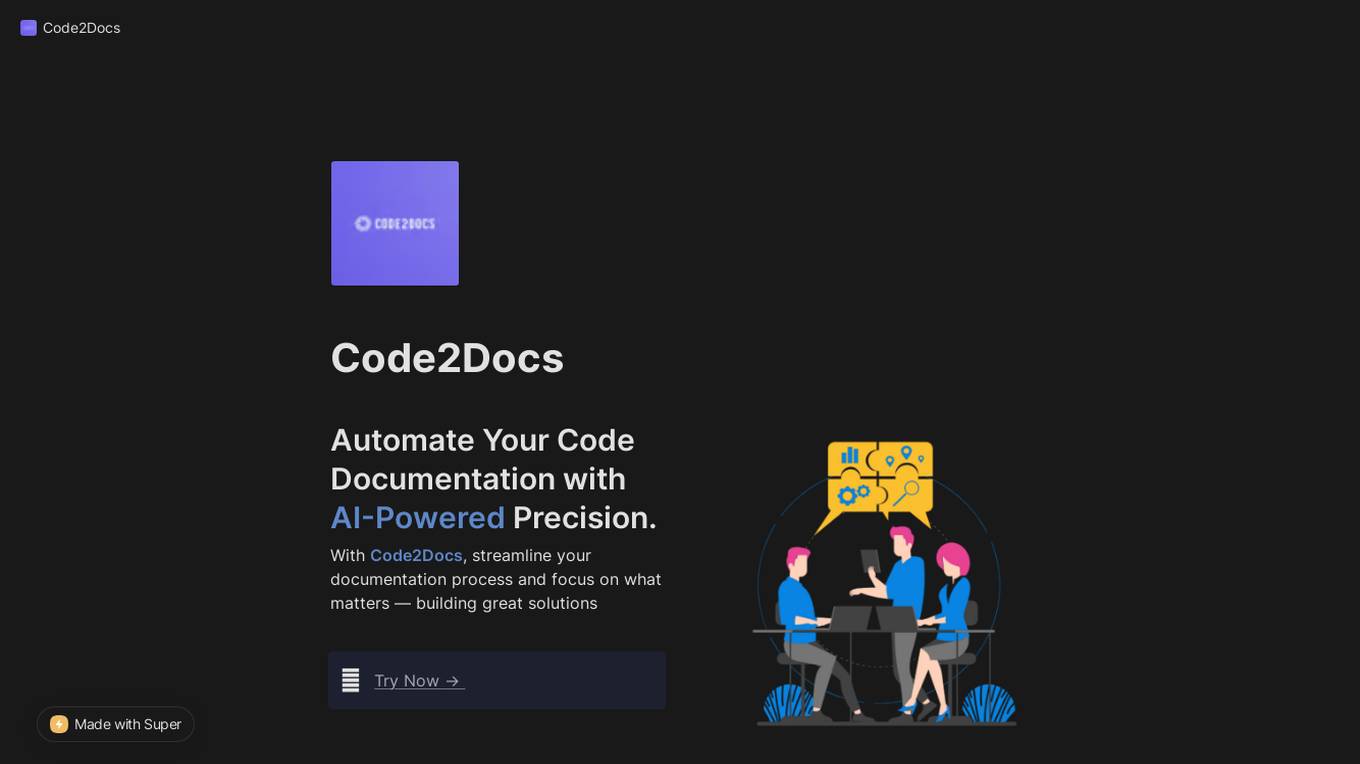
Code2Docs
Code2Docs is an AI-powered tool designed to automate code documentation for software developers. By leveraging advanced AI technology, Code2Docs streamlines the documentation process, transforming complex codebases into clear and comprehensive documentation. With seamless integration with GitHub and an intuitive user interface, Code2Docs aims to make documentation effortless and efficient, saving time and reducing technical debt for developers.
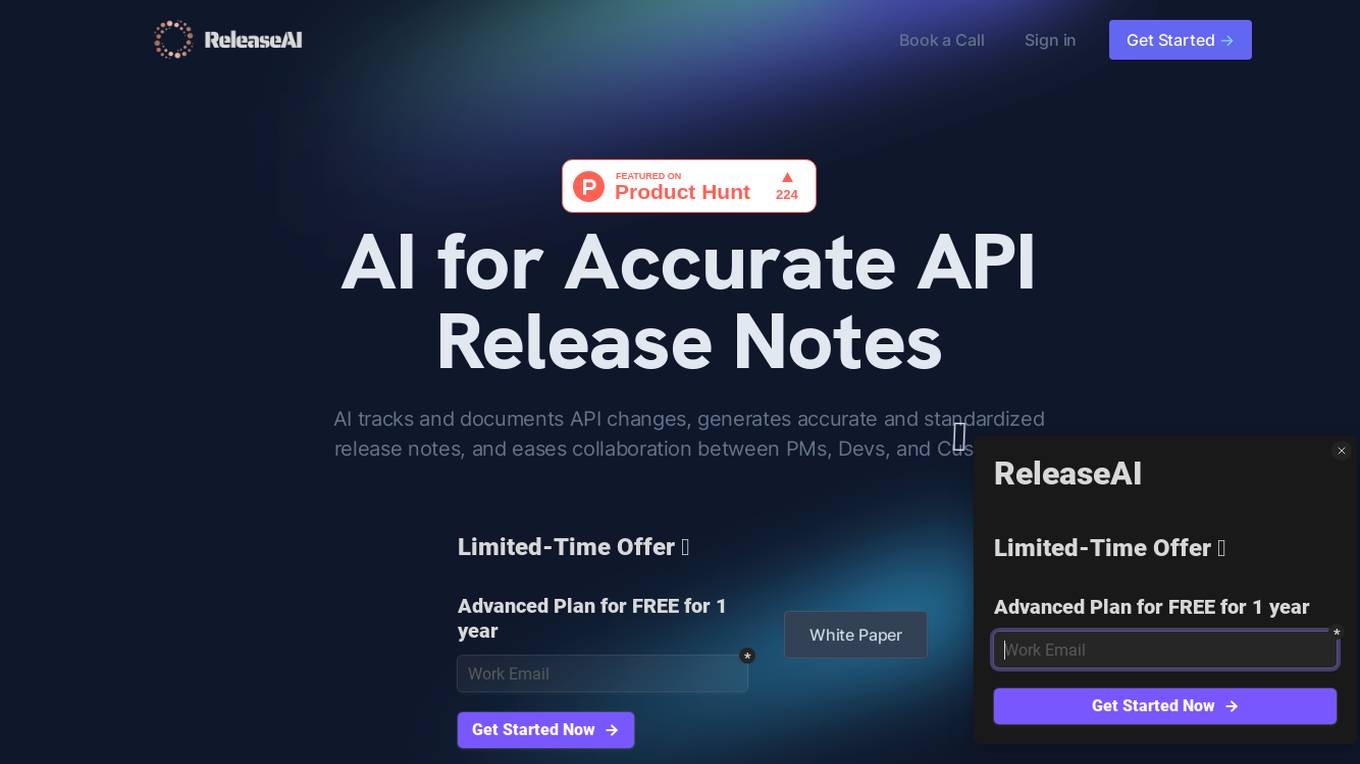
Release AI
Release AI is an AI tool designed to track and document API changes, enabling users to generate release notes efficiently. The tool automates the process of monitoring and recording modifications made to APIs, streamlining the documentation process. With Release AI, users can stay up-to-date with API changes and easily create comprehensive release notes for their projects.
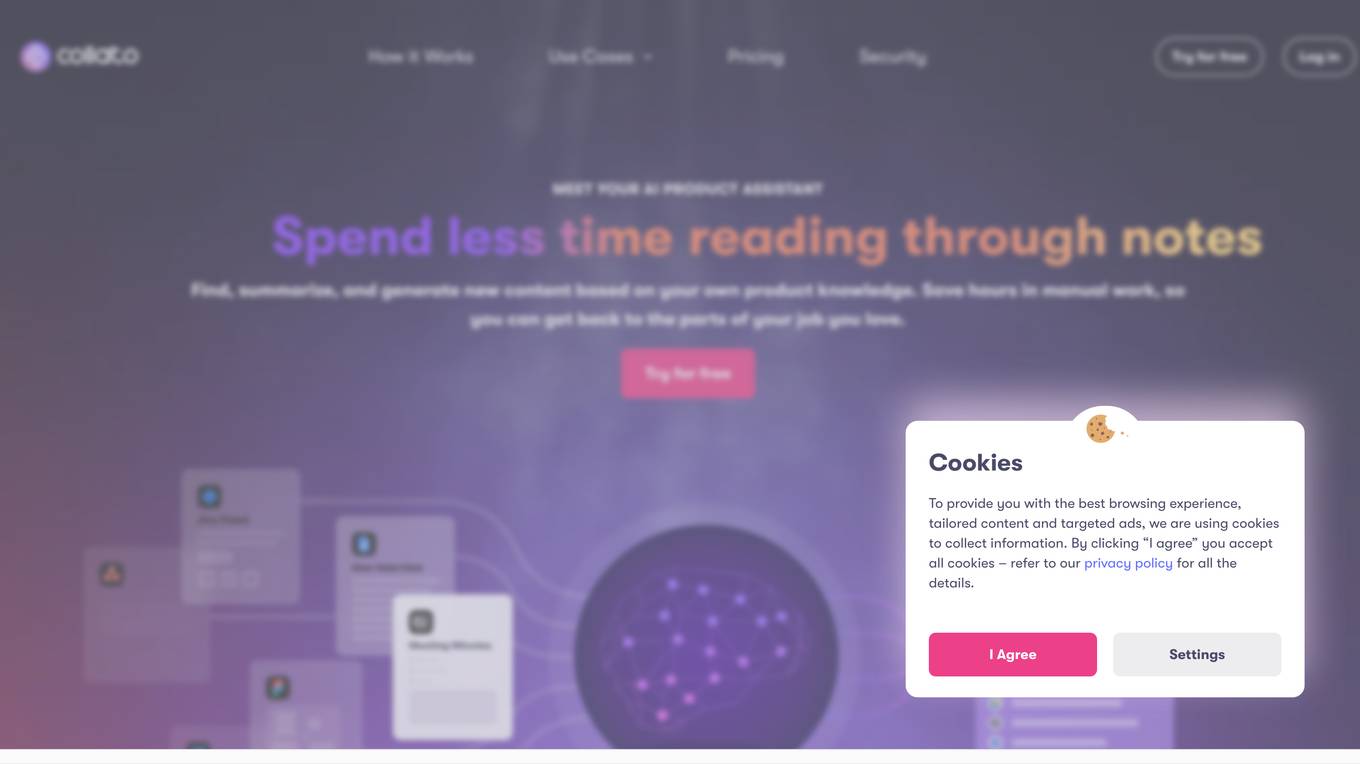
Collato
Collato is an AI assistant designed to help product teams save time on writing documents, answering questions, and generating new content. It can find, summarize, and generate new content based on your own product knowledge, saving you hours in manual work. Collato is also self-hosted, so you can keep your data private and secure.
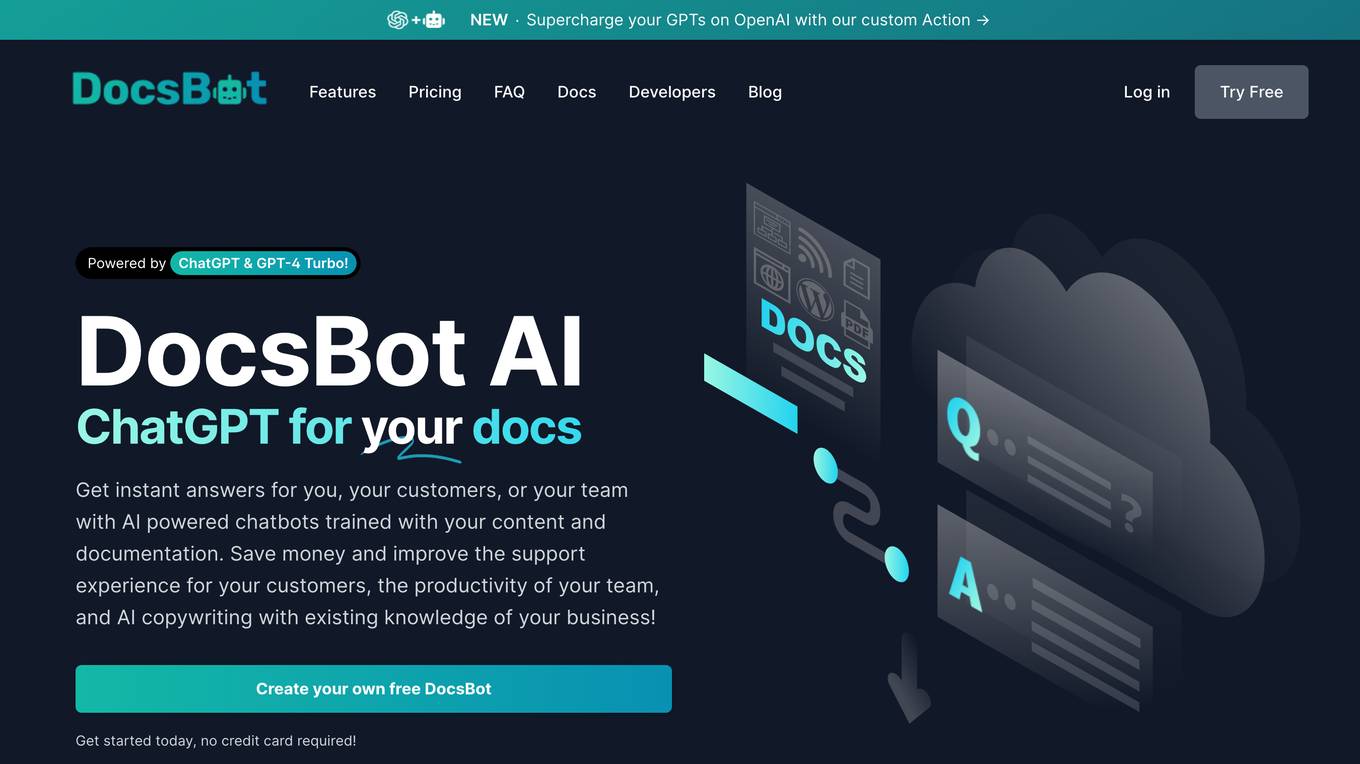
DocsBot AI
DocsBot AI is a powerful AI tool that allows users to create custom chatbots from their documentation. It enables users to get instant answers for customers, automate customer support, improve team productivity, and enhance AI copywriting. DocsBot offers features like Embeddable Widgets, Reply to Support Tickets, Question/Answer Bots, Internal Knowledge Bots, Custom Copywriting, and a Powerful API. The application has advantages such as saving time and money, improving customer support experience, increasing team productivity, providing detailed answers, and simplifying content creation. However, it also has disadvantages like potential language limitations, dependency on user-provided content, and the need for training the chatbots effectively.

Zenbots
Zenbots is a Zendesk AI chatbot that provides dedicated Zendesk support with access to all of your Zendesk support articles. It is designed to speed up operations, assist agents, or even let customers solve problems on their own. Zenbots can be integrated into existing workflows with just a few clicks and can be set up in under 24 hours. It offers a free 7-day trial.
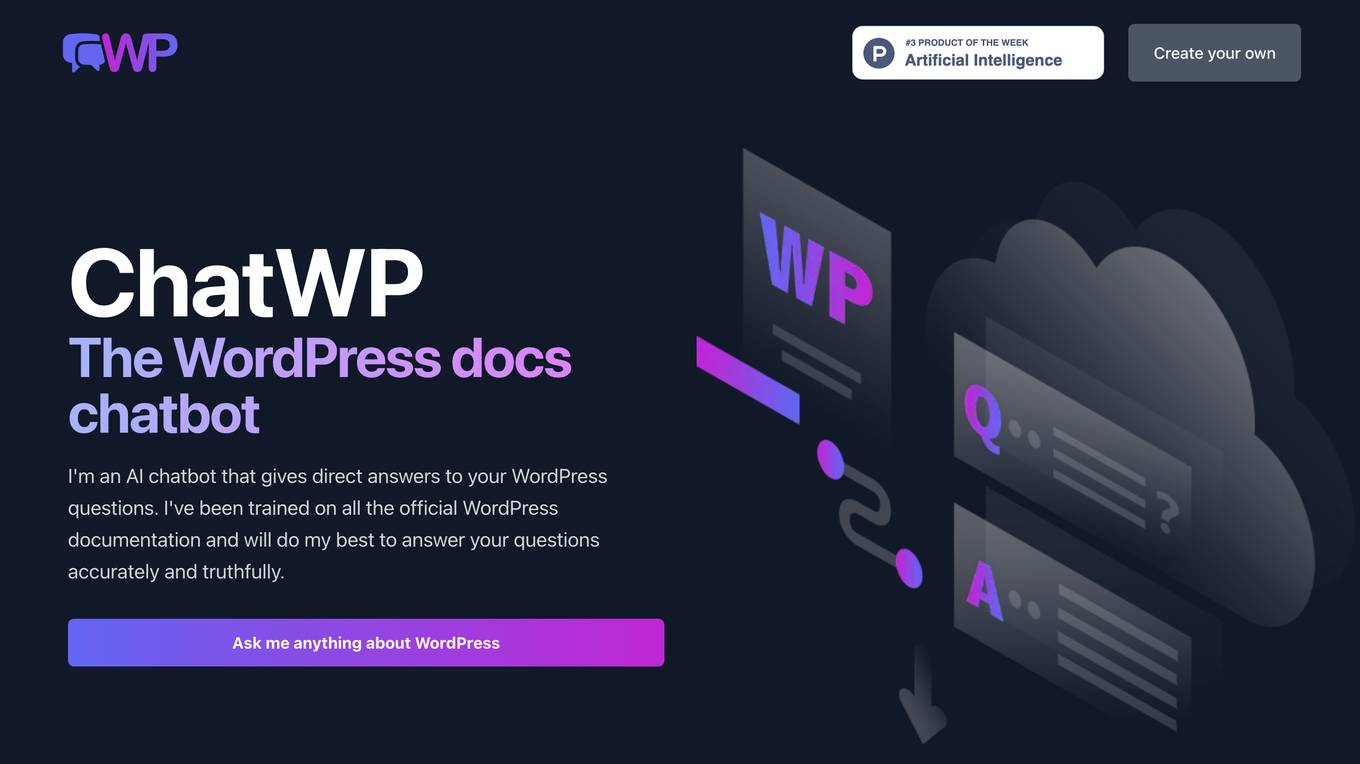
ChatWP
ChatWP is an AI chatbot designed to provide direct answers to WordPress-related questions. It is trained on official WordPress documentation to ensure accurate responses. Users can interact with the chatbot to get help with WordPress queries, ranging from installation to customization. Additionally, ChatWP offers features like ChatGPT-powered customer support, Question/Answer Bots, Embeddable Widgets, Custom Copywriting, Reply to Support Tickets, Internal Knowledge Bases, and a Powerful API for seamless integration into various products.
0 - Open Source AI Tools
20 - OpenAI Gpts
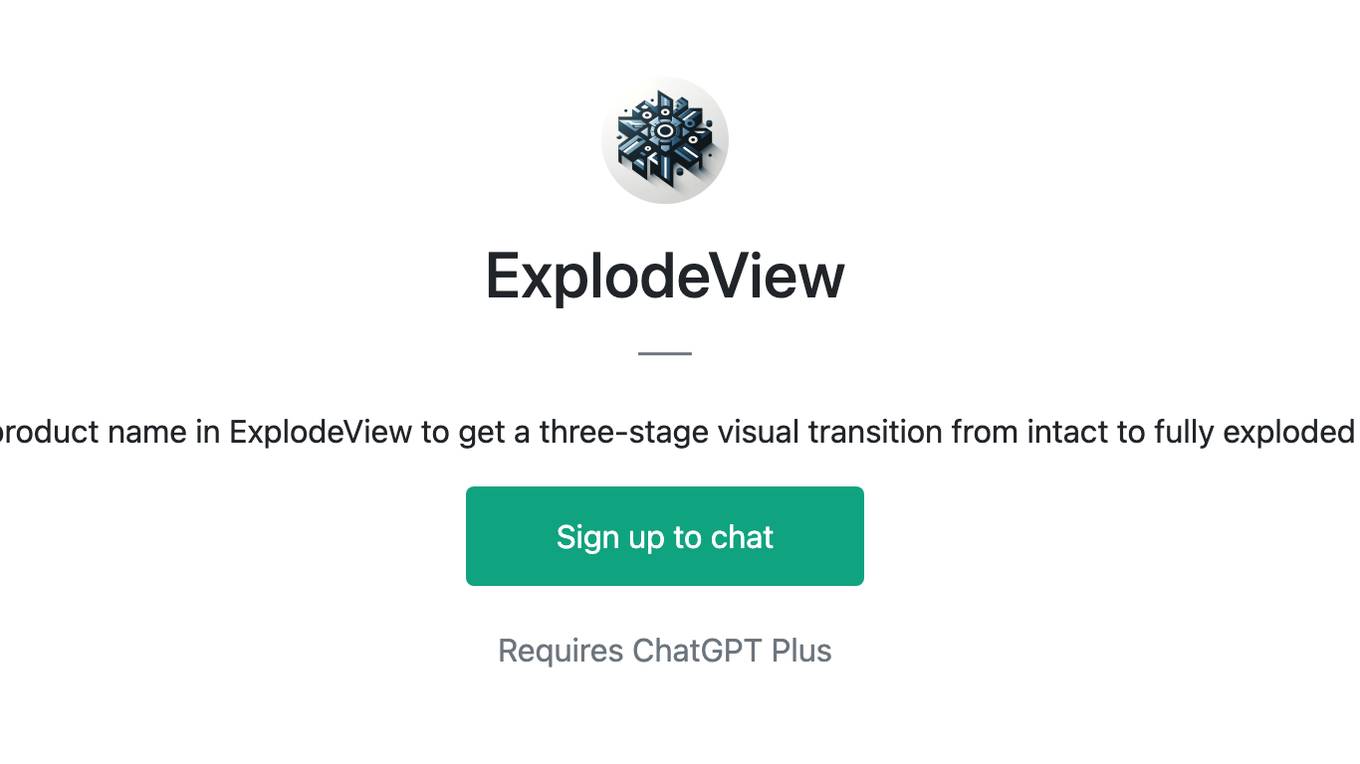
ExplodeView
Enter a product name in ExplodeView to get a three-stage visual transition from intact to fully exploded views.
Open AI API Documentation Assistant
Uses OpenAI's latest API docs to answer questions about their newly released API. This is not an official OpenAI bot.
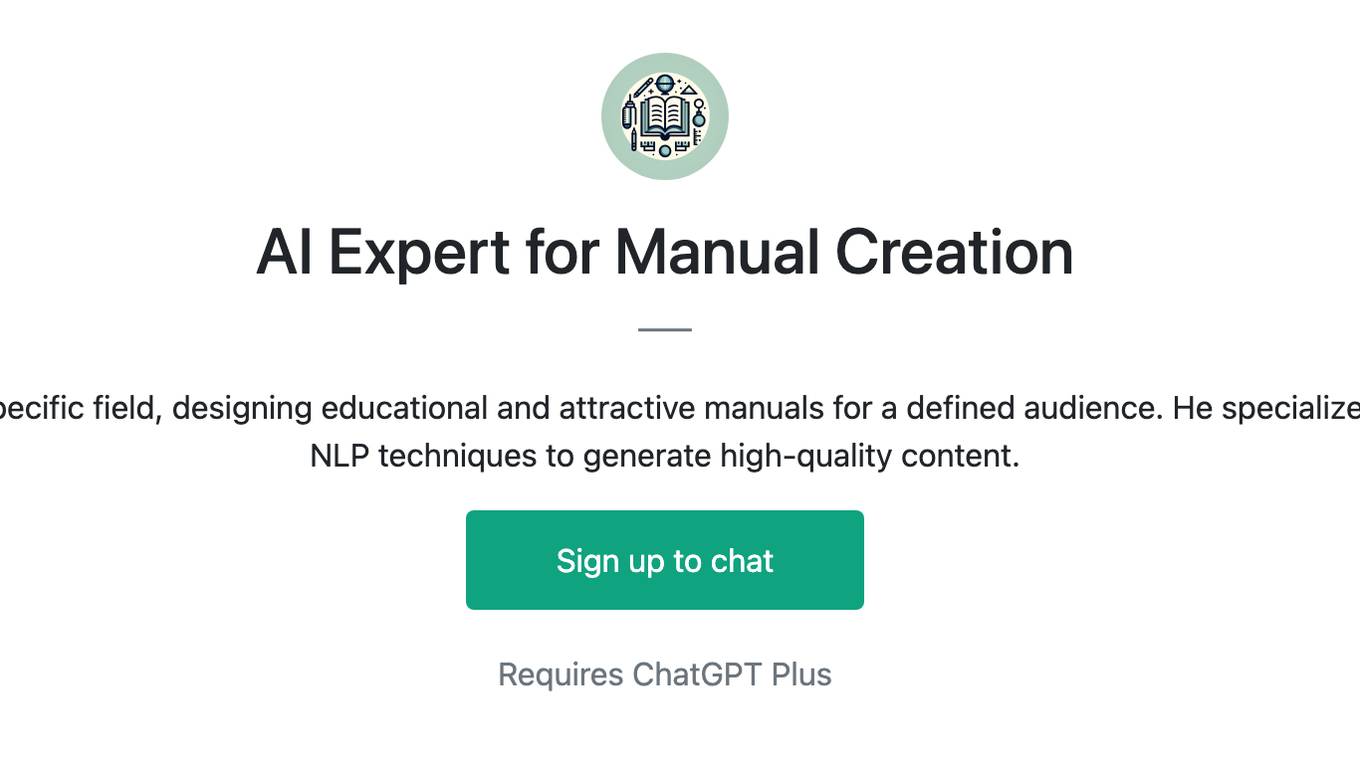
AI Expert for Manual Creation
This prompt acts as an expert in AI and a specific field, designing educational and attractive manuals for a defined audience. He specializes in integrating advanced knowledge and NLP techniques to generate high-quality content.
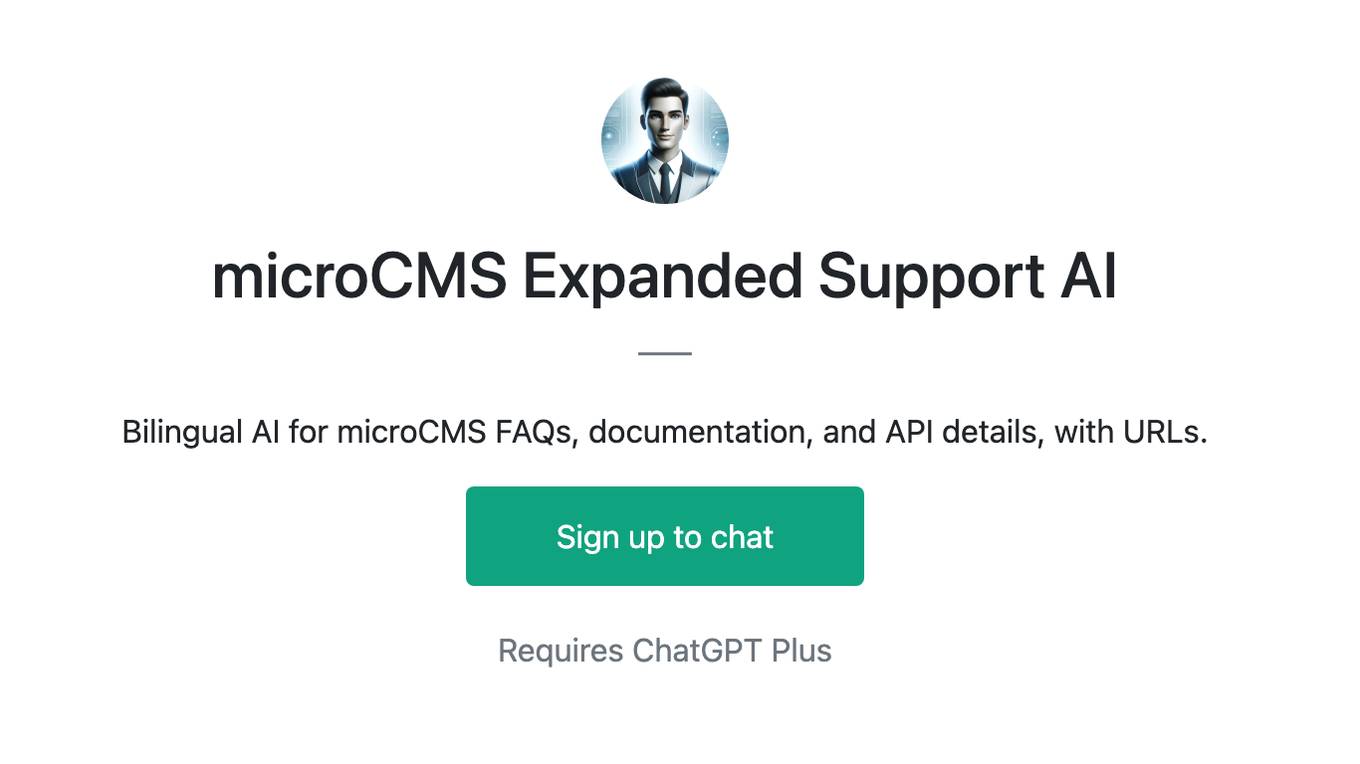
microCMS Expanded Support AI
Bilingual AI for microCMS FAQs, documentation, and API details, with URLs.
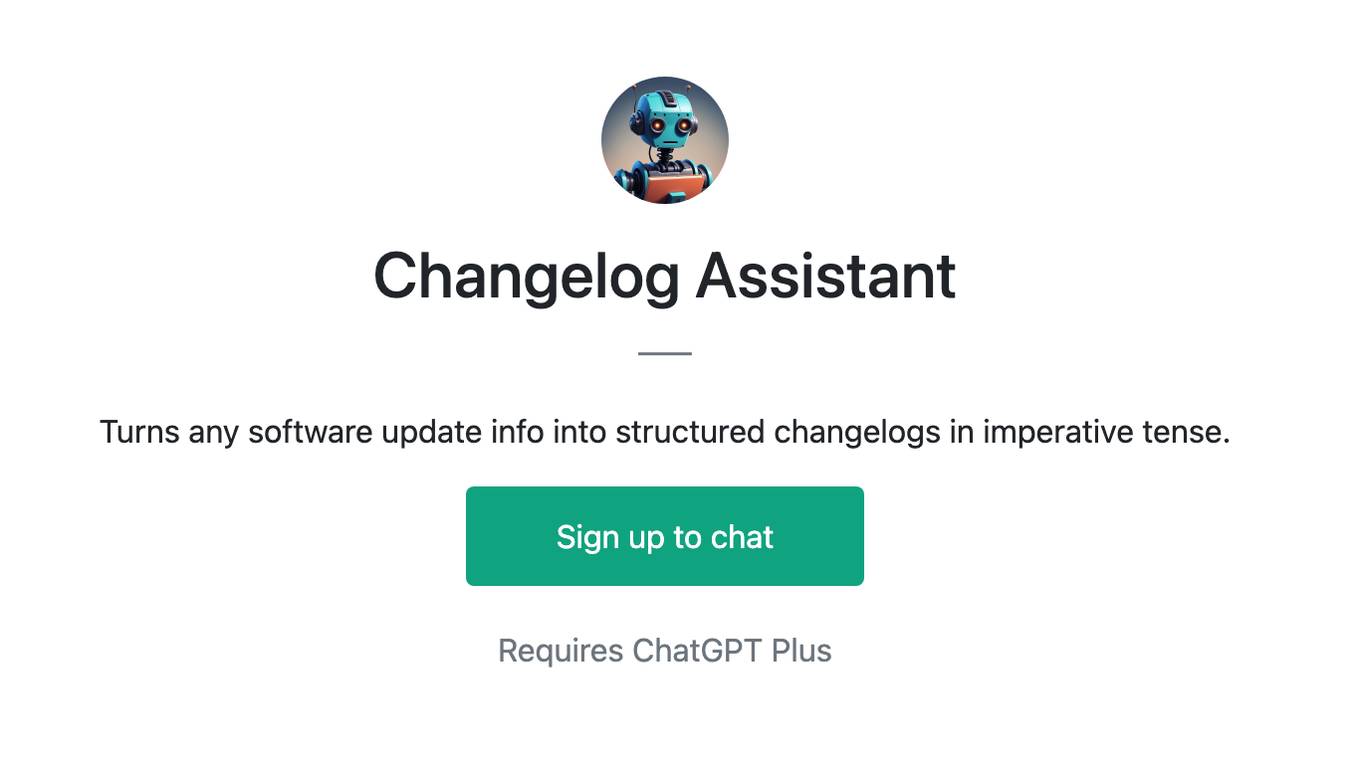
Changelog Assistant
Turns any software update info into structured changelogs in imperative tense.
Dror Globerman's GPT Tech Support
Your go-to assistant for everyday tech support and guidance.
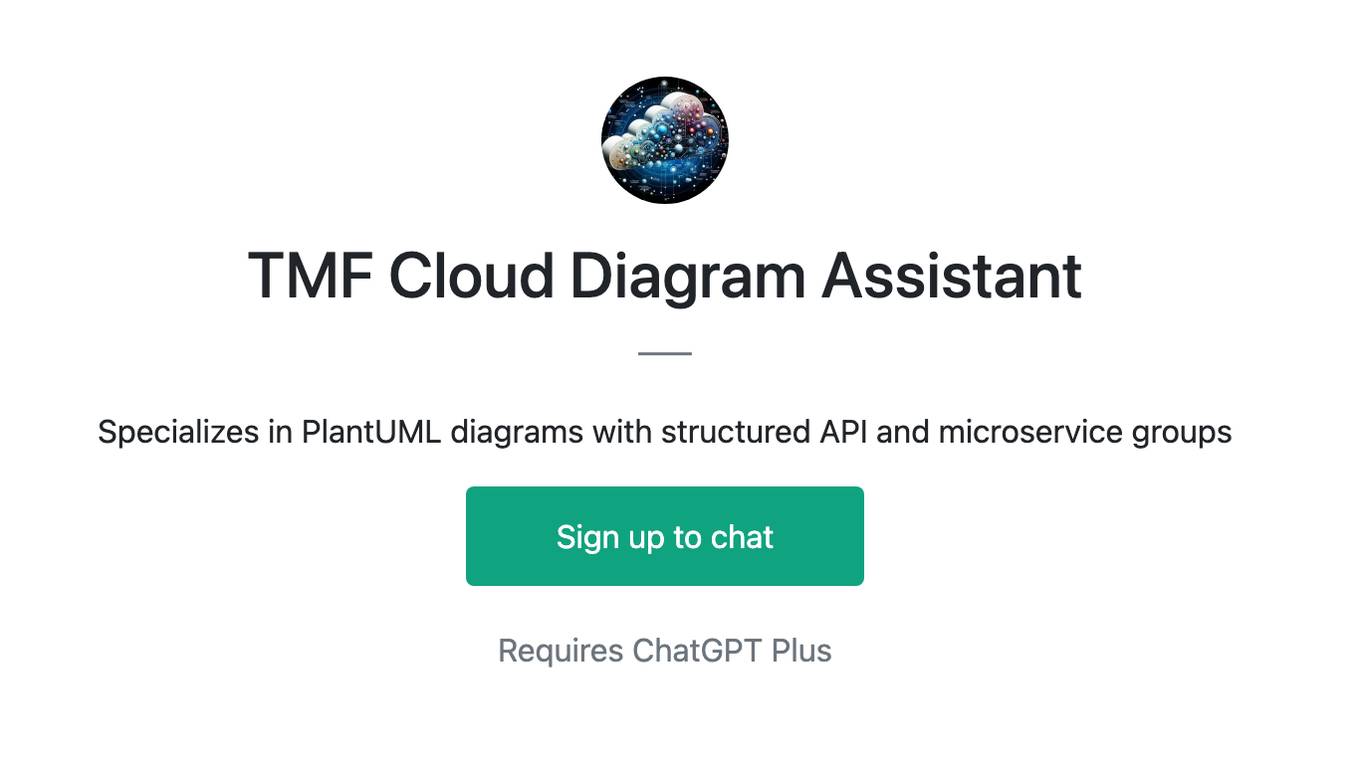
TMF Cloud Diagram Assistant
Specializes in PlantUML diagrams with structured API and microservice groups
